NBA playoffs preview: Spurs-Thunder will be nothing short of spectacular
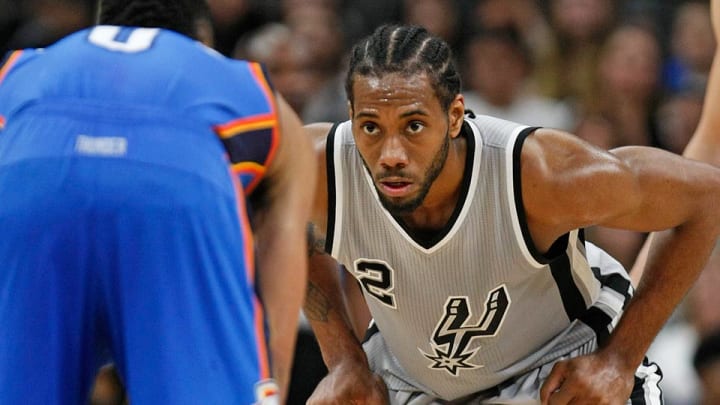
Get all of Rob Mahoney's columns as soon as they’re published. Download the new Sports Illustrated app (iOS or Android) and personalize your experience by following your favorite teams and SI writers.
Matchup: (2) San Antonio Spurs vs. (3) Oklahoma City Thunder
Season Series: 2-2
San Antonio's Efficiency Rankings (Off: 1, Def: 1, Net Rating: 1)
Oklahoma City's Efficiency Rankings: (Off: 2, Def: 12, Net Rating: 3)
The Matchup
Although breaks and strains have irrevocably altered one half of the Western Conference playoff bracket, the Spurs and Thunder angle toward their second-round meeting in relatively good health. All of the principal figures are accounted for: Kevin Durant and Russell Westbrook, who have only been jointly healthy enough to make one playoff run together since 2012, are operating at full speed. Kawhi Leonard has ascended to superstardom and LaMarcus Aldrige has joined the Spurs since these rivals last met. Tim Duncan and Serge Ibaka still loom on every drive, shaping possessions through blocks and deterrence.
These could be the two best teams in the West given all that we don’t know about Stephen Curry’s recovery timeline—a turn of events which serves as a thematic extension of the regular season. San Antonio’s own historic run was relegated to the B-side by Golden State’s hot start and pursuit of a seemingly unbreakable record. Oklahoma City carried out its work in startling quiet fashion despite its star power and overall merits (a 55–win campaign with a top-three net rating). Curry’s absence, while unfortunate, does offer a window to fully appreciate these two excellent teams on their own terms. Their series promises to be nothing short of spectacular.
• MORE NBA: Winners and losers from the start of wild NBA playoffs
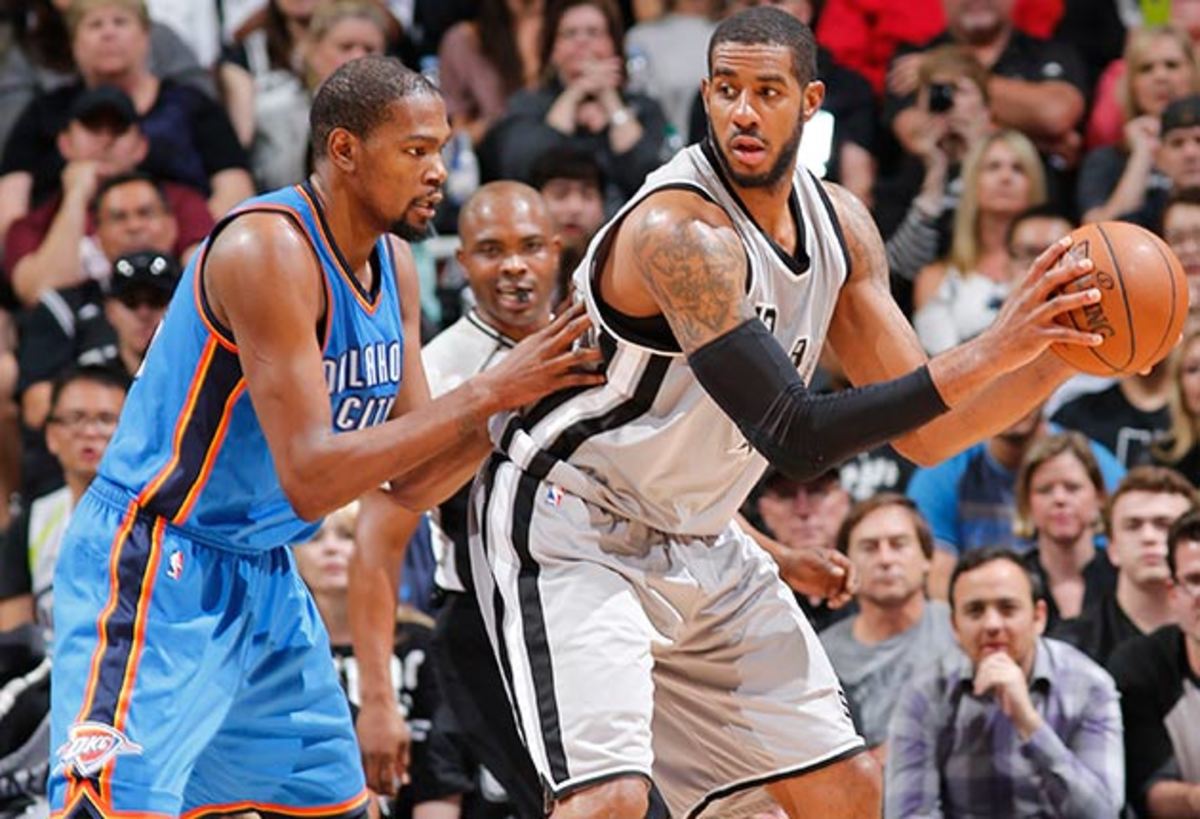
The Case For: The Spurs
Any opponent looking to the topple the Thunder must build its game plan from the superstars-out. Leonard is as splendid a match for Durant as exists in the league—the rare defender with the right body type, proficiency, and disposition to hinder one of the game’s great scorers. Their matchup will be thrilling for its give-and-take, though the fact that it can be somewhat isolated is of great help to the Spurs. Oklahoma City can bury an opponent that doesn’t have the height to contest Durant’s jumpers or the speed to cut off his drives. That Leonard has both allows San Antonio to stay solid defensively against action elsewhere on the floor.
That will be crucial in the efforts to challenge Westbrook, who may have a hell of a series regardless. Tony Parker (who actually saw plenty of time on Westbrook in their last regular season matchup) would be toast here. It’s up to Danny Green to do his best in the cross-match, an assignment beyond even his considerable defensive ability. The difference in quickness between the two players is too large to ignore. Still, the fact that Green is even a reasonably effective option against the All-NBA guard (and one that mitigates Westbrook’s post game) puts the Spurs in significantly better standing than the average Thunder opponent. Stopping both Durant and Westbrook is impossible. Slowing Durant and putting length in Westbrook’s path, however, is a nice start in the efforts to unsettle OKC’s offense.
• MORE NBA: Kawhi Leonard giving second wind to Spurs dynasty
Both matchups should be aided by the handling of certain Thunder role players that don't need to be guarded closely. Andre Roberson, who averaged 23 minutes in the first round, will be used as a hiding place for Parker and a designated help position for various other defenders. He’ll be forced to make shots or make cuts to force the defense’s begrudging respect—neither of which is his strong suit. San Antonio, too, might be the best in the league when it comes to selectively marginalizing rangeless bigs. Steven Adams and Enes Kanter feed off of defensive breakdowns; by maneuvering themselves into a particular pocket behind the defense, both big men are able to duck in for dunks and layups once the defense overcommits to Westbrook or Durant. The Spurs may be forced into the same rotations, but their timing and containment is generally good enough to eat up space inside and prevent some of that damage.
The presence of those bigs, too, ensures that Duncan will have a place on the floor whenever the Spurs need him. Golden State imposes a rubric on opposing bigs—the need to step out to defend Stephen Curry and track Draymond Green—that Duncan simply cannot accommodate at his age. Oklahoma City, by comparison, has a point guard who wants to drive to the space on the floor where Duncan is most comfortable and a cast of bigs who live there. This affords San Antonio a certain normalcy in its playing rotation, which protects players like Boris Diaw from overuse and ensures that Gregg Popovich is able to rely on his best players.
• MORE NBA: Sideline Strong: Craig Sager always on the bright side
Speaking of: Aldridge isn’t quite on Dirk Nowitzki’s level when it comes to pulling Ibaka away from the rim, but he’s close. San Antonio will need to be able to sell the threat of his jumper to open the paint. When that’s not an option, Aldridge is strong enough to back down Ibaka and force a defensive reaction. The same goes for Leonard when operating against any opponent but Durant.
It should concern the Thunder that their somewhat precarious team defense will be subject to guarding one of the best-passing teams in basketball. Oklahoma City’s length and athleticism has largely disguised its imprecise work in coverage; relative to the ideal of rotating on a taut string, the Thunder tend to move and recover with the kinds of glitches and scrambles that suggest slack. San Antonio is among the teams uniquely qualified to exploit that tendency.
That Oklahoma City has been especially shaky when defending in crunch time doesn’t bode well for a competitive series, either. Continuous player movement will test Westbrook’s gambling tendencies, Kanter’s ability to track multiple defenders, and the extent of Ibaka’s influence. On the other side of the ball, the Spurs will force action to the range-less Roberson or Dion Waiters, who played a great first-round series but has a long track record of questionable decisions. Every crucial possession in the series will need to be waged with real liabilities on the floor for the Thunder. Expect the Spurs to identify them quickly and capitalize.
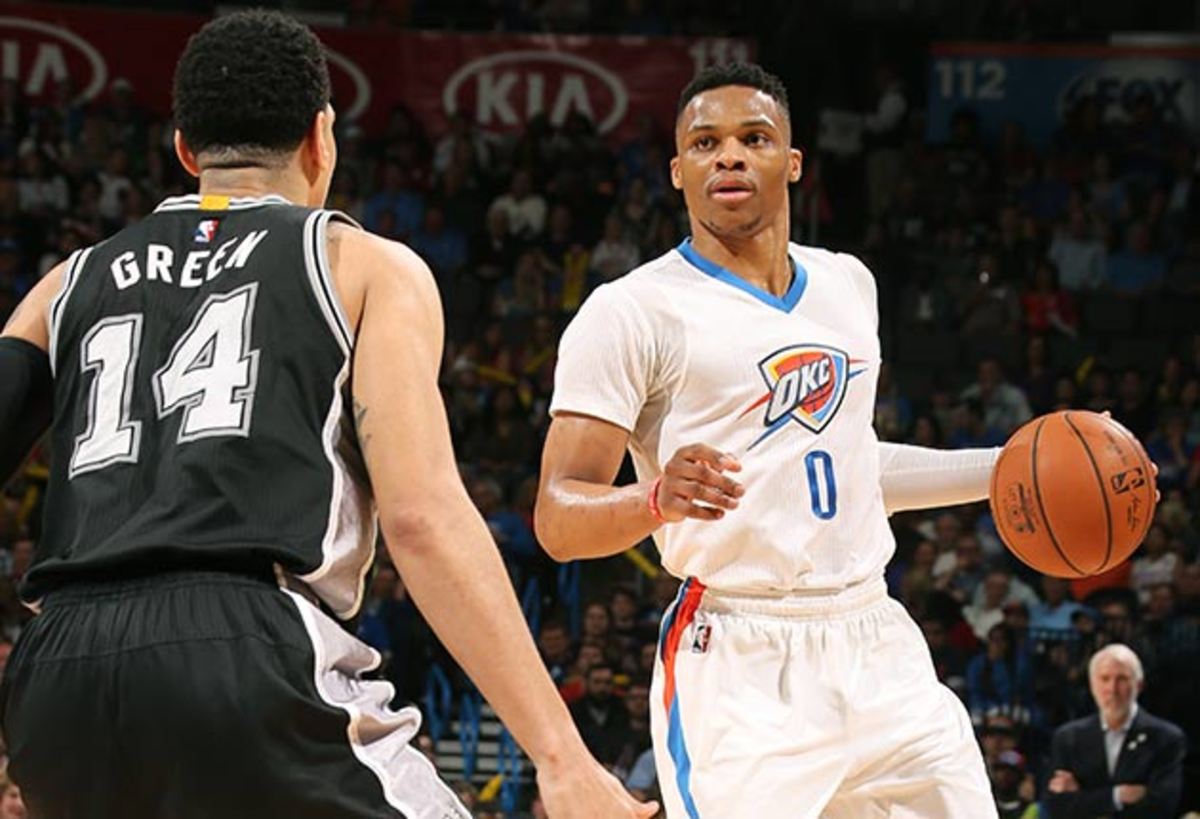
The Case For: The Thunder
Not only will Westbrook have a clear advantage in quickness over his initial defender all series long, but it’s possible he’s explosive enough to streak past Duncan and Aldridge in their rotations. The principles of a sound defensive system rely on a team’s collective ability to contain the ball to certain areas of the floor. Westbrook bucks against that kind of restraint by darting through should-be traps, rising over attempted contests, and beating many defenders to a given spot. The problem with cross-matching Green to defend him, too, is that Westbrook can ramp up the pace in an instant to attack any other guard who happens to be on his side of the floor. Without the full-court vigilance of San Antonio’s bigs, players like Parker, Manu Ginobili, and Patty Mills could be victimized for easy points.
Parker should be a point of emphasis for the Thunder in a larger sense, as both an exploitable defender and a scoring option they can live with. If Waiters demonstrates the kind of shot-making and judgment that made him so effective against the Mavs, Parker will have nowhere on the floor to hide. These last few seasons have not been kind to San Antonio’s storied point guard, who was never the best defender to begin with. Slowing feet only make the 33-year-old that much more vulnerable to drivers like Waiters, and in Mills and Ginobili as reserves the Spurs are short on more preferable options. It should go without saying that Westbrook should overwhelm Parker should Popovich opt for a traditional matchup, though even a cross-matched assignment won’t fully protect him.
On the other side of the ball, it’s notable that Parker went 0-for-4 from the field in the last regular season meeting with the Thunder without attempting a single free throw. Westbrook (or Roberson) will need to stay attentive to Parker’s cuts, but the reality is that his curls into mid-range jumpers aren’t anywhere near the threat they were a few seasons ago. When pressed against the alternative of Leonard or Aldridge creating offense, the Thunder should see where they stand with Parker’s shot.
GALLERY: Russell Westbrook's fashion and style choices
Russell Westbrook fashion and style
September 13, 2015
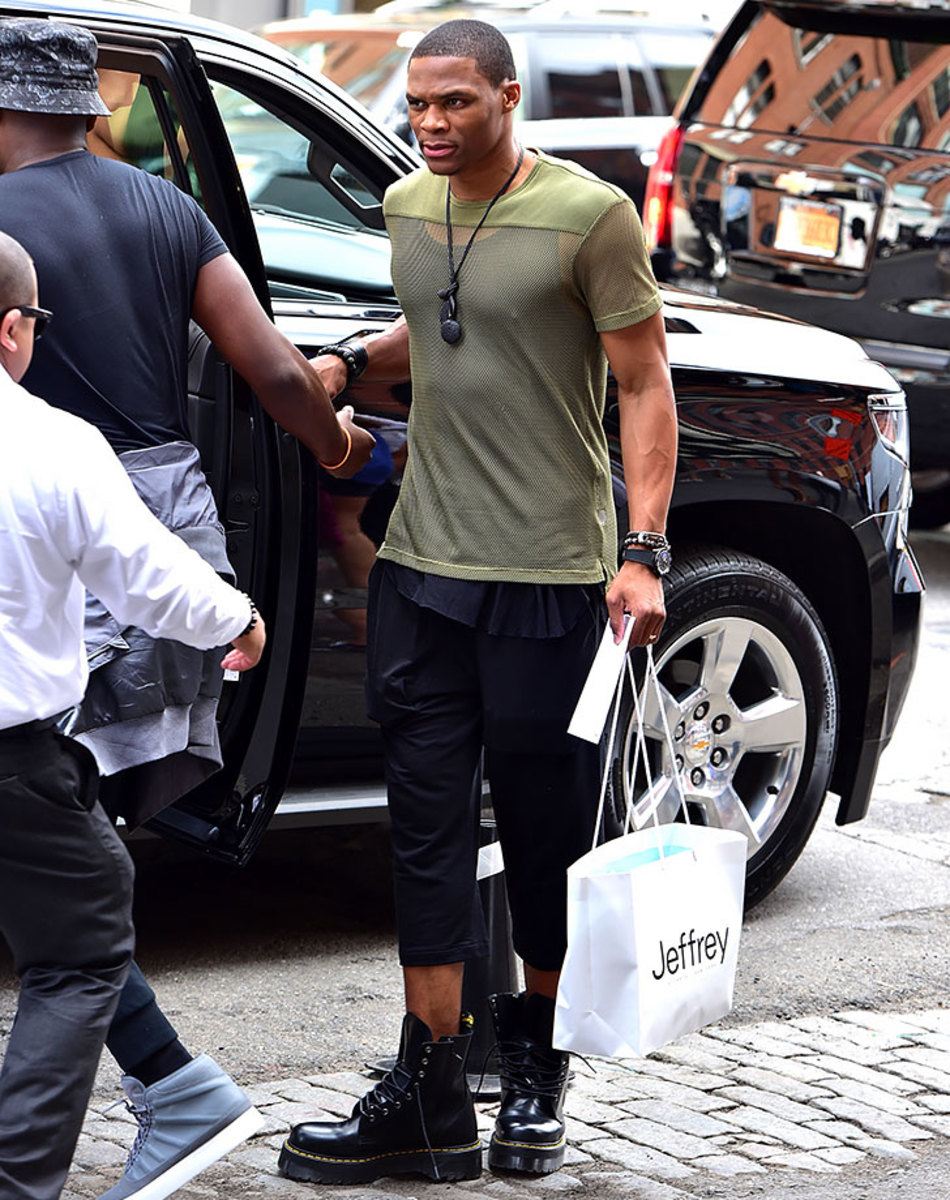
September 11, 2015
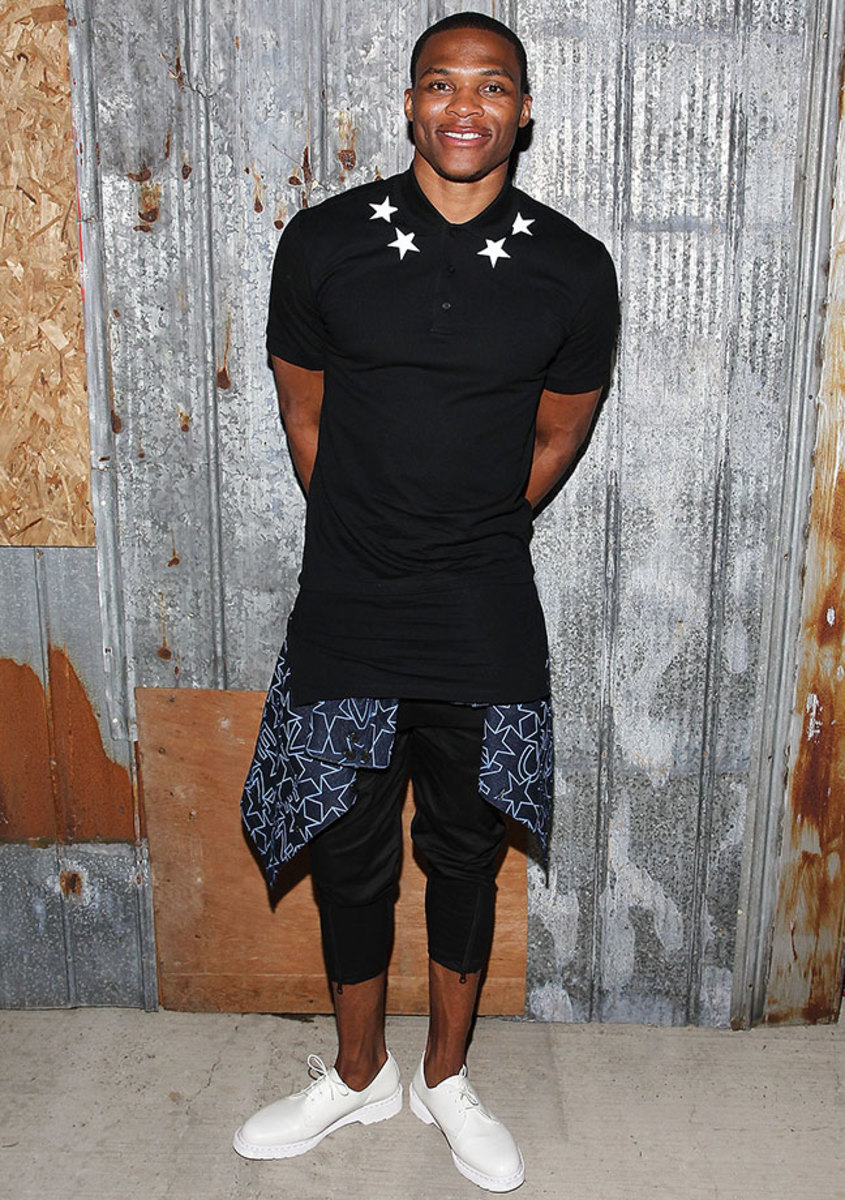
July 22, 2015

June 27, 2015
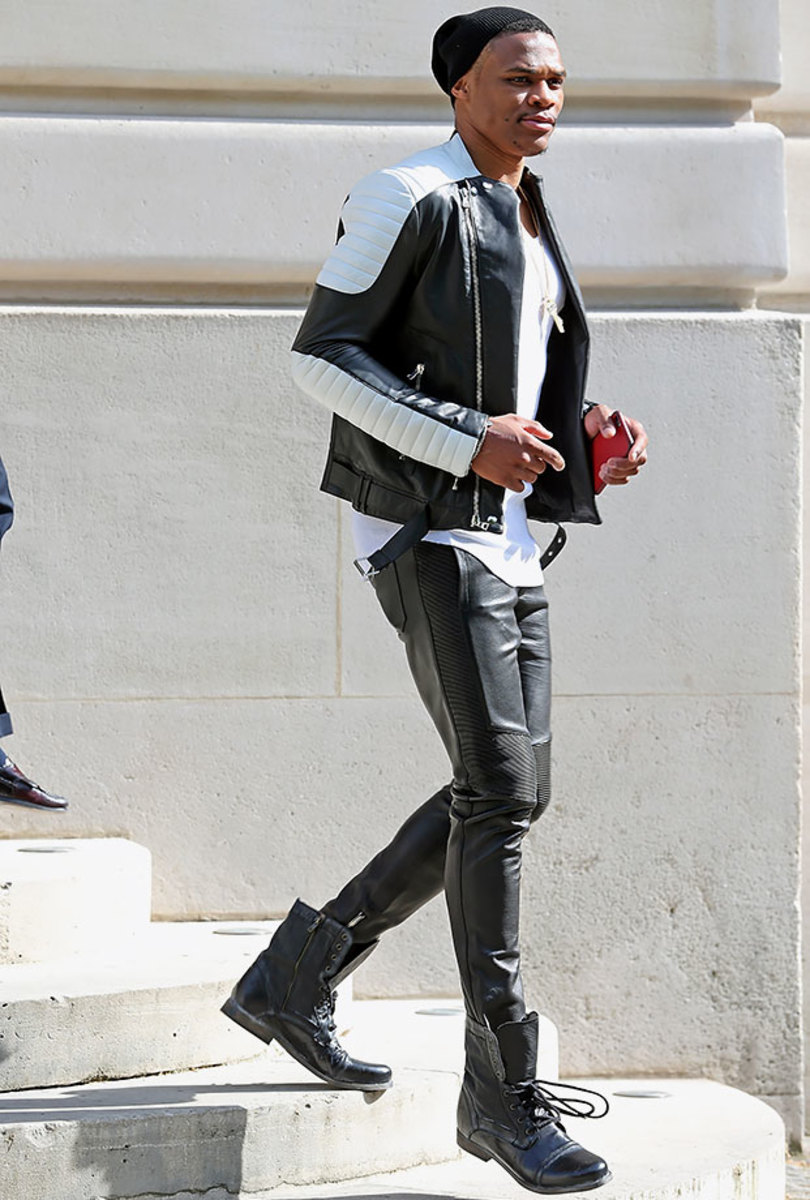
June 27, 2015

June 26, 2015

June 23, 2015

June 6, 2015

with Nina Earl
June 21, 2015
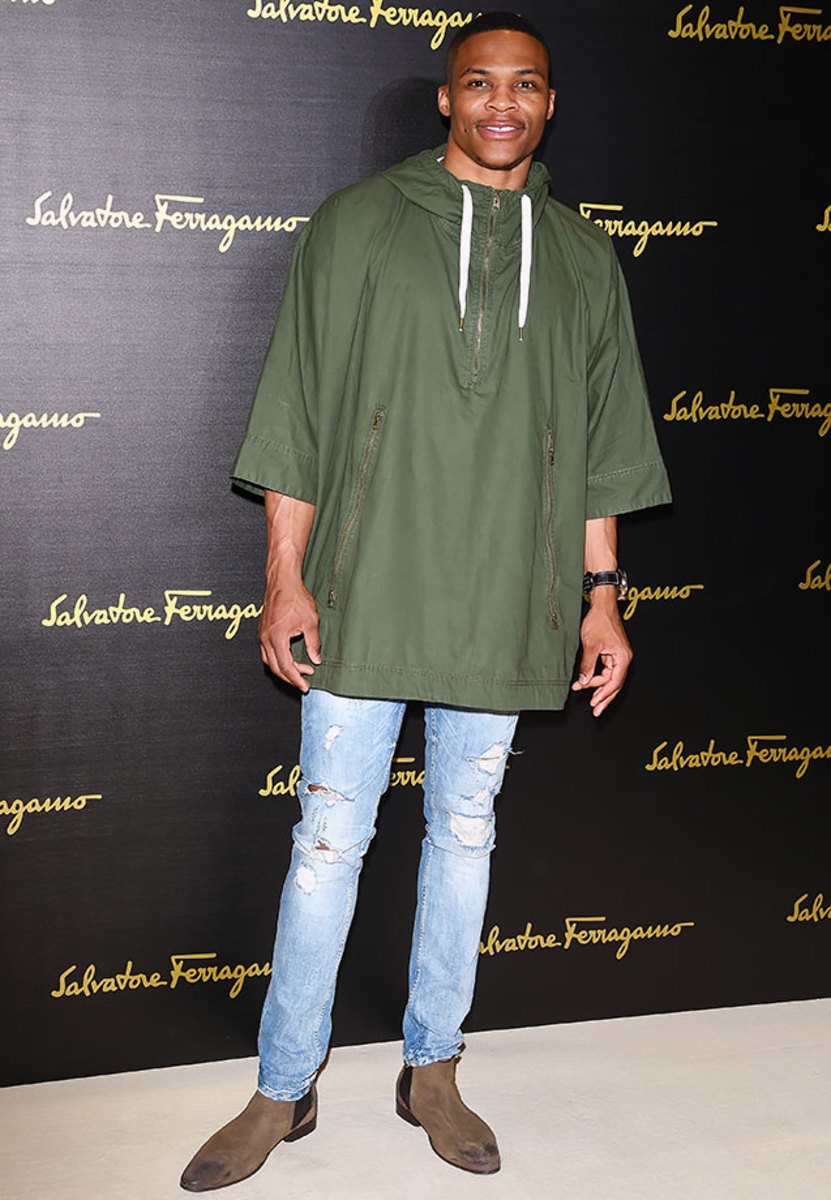
June 6, 2015
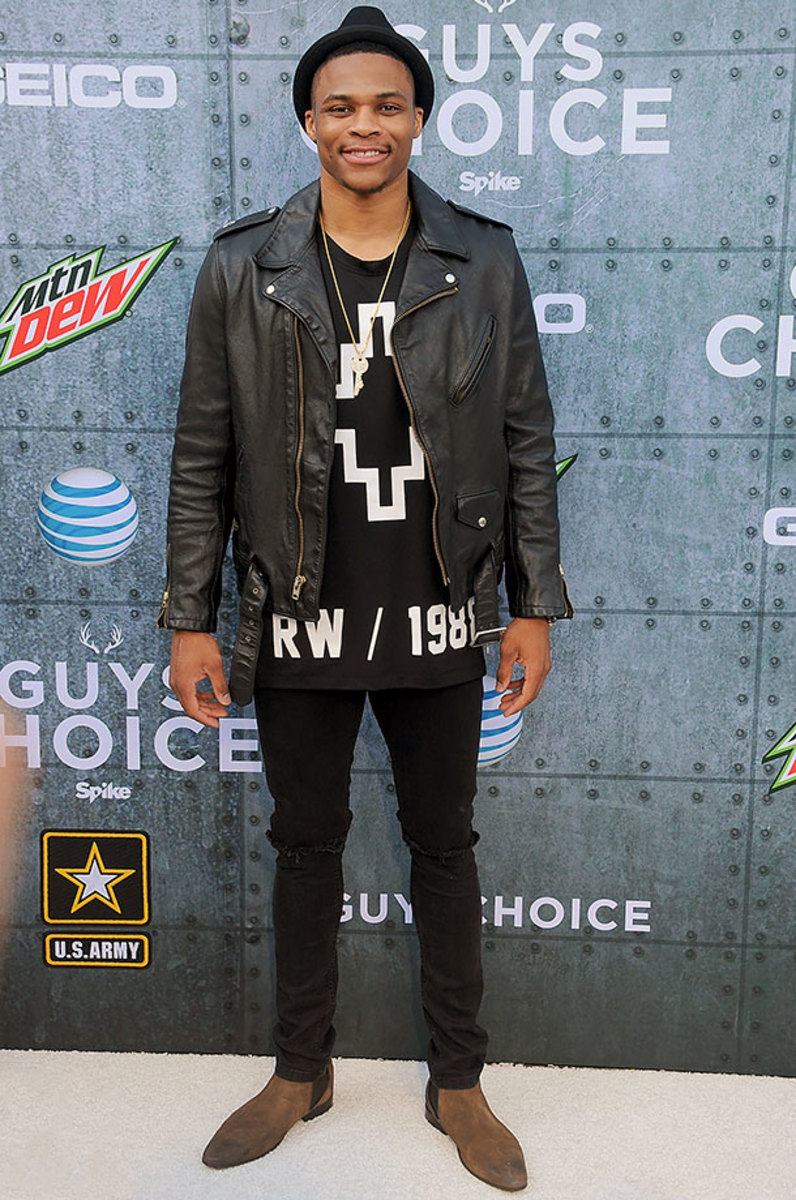
June 1, 2015
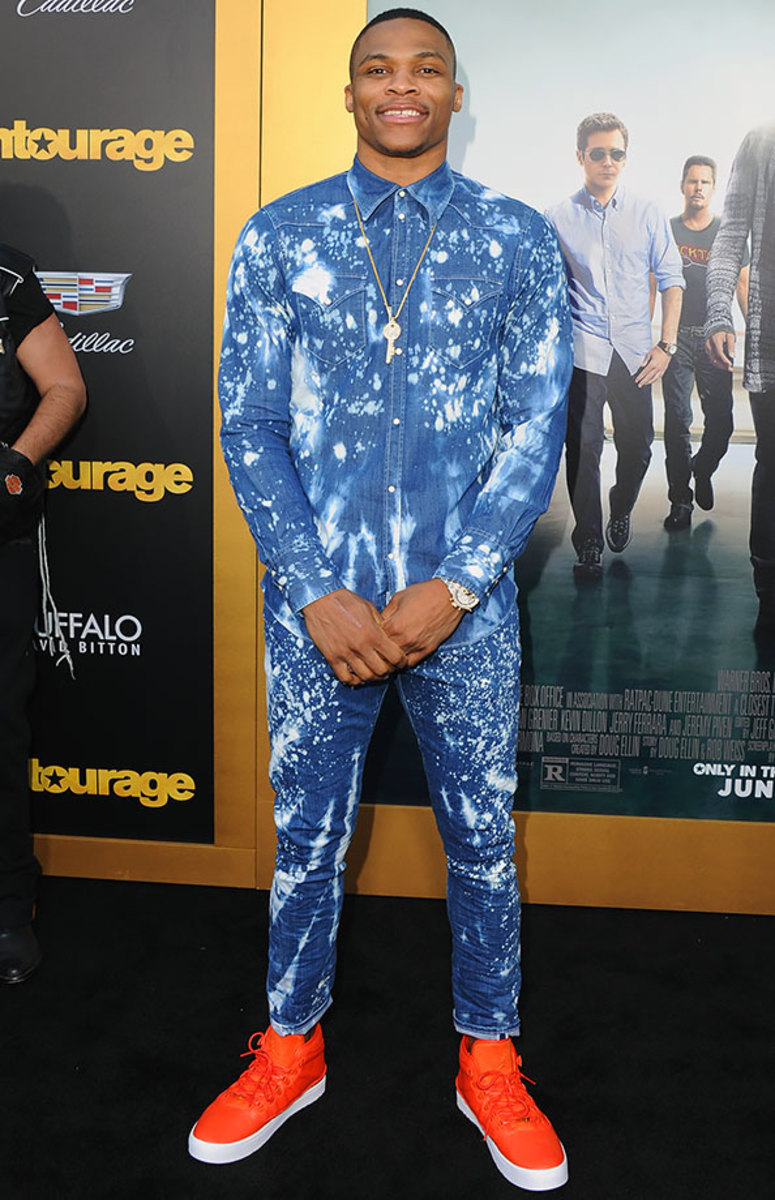
February 15, 2015
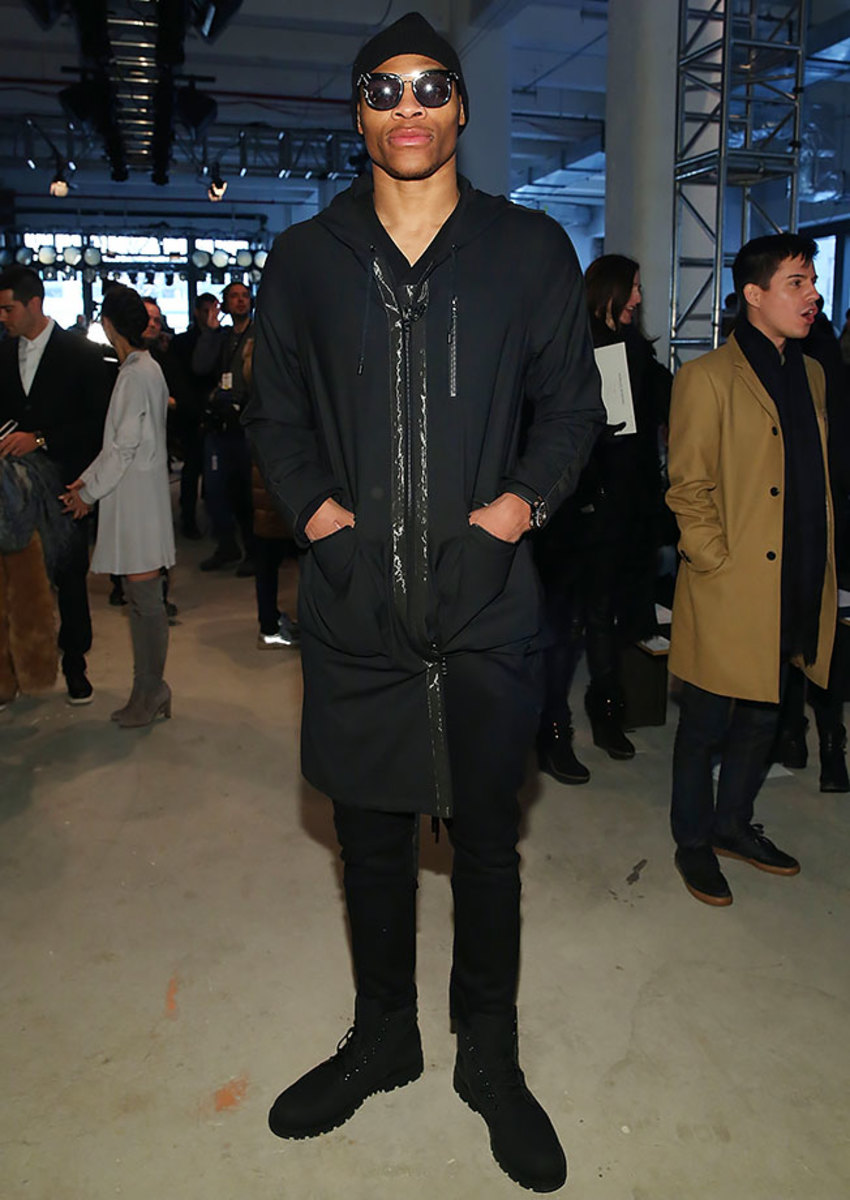
February 13, 2015
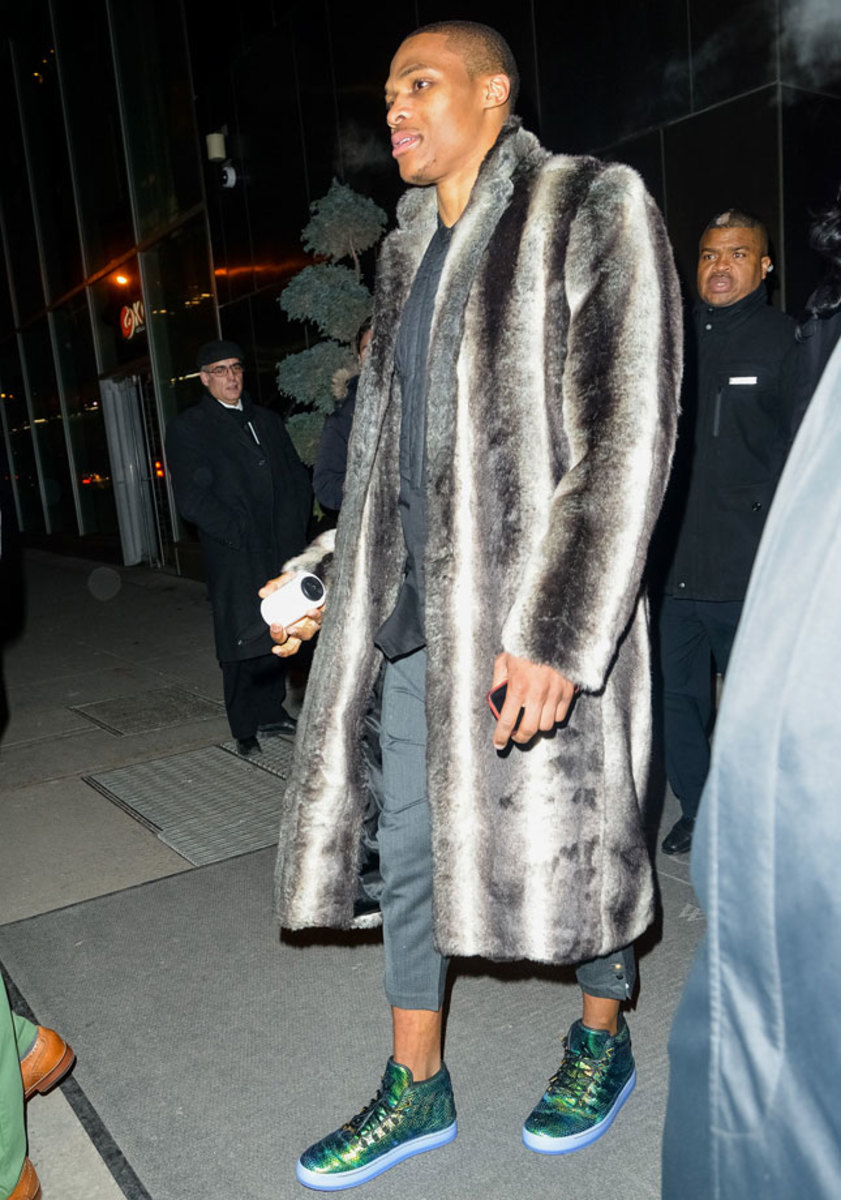
February 12, 2015
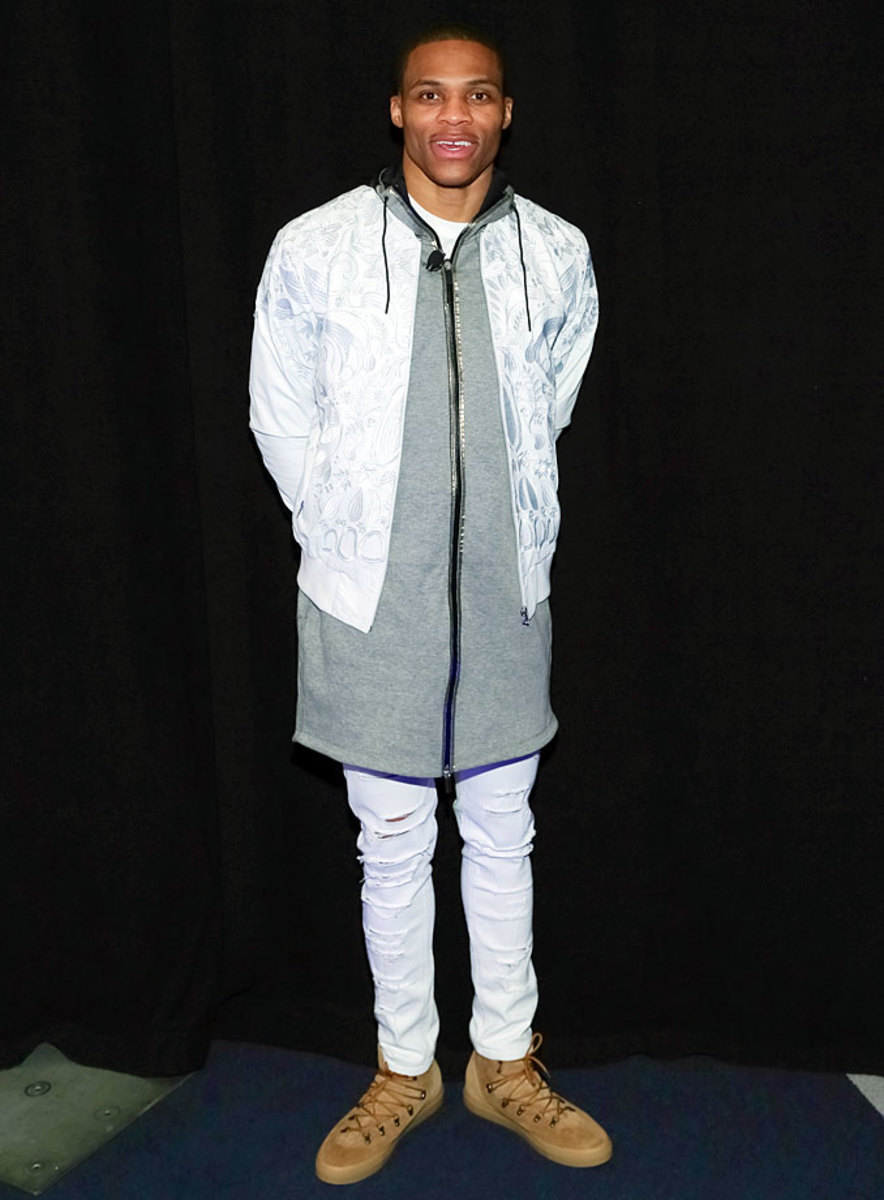
January 25, 2015
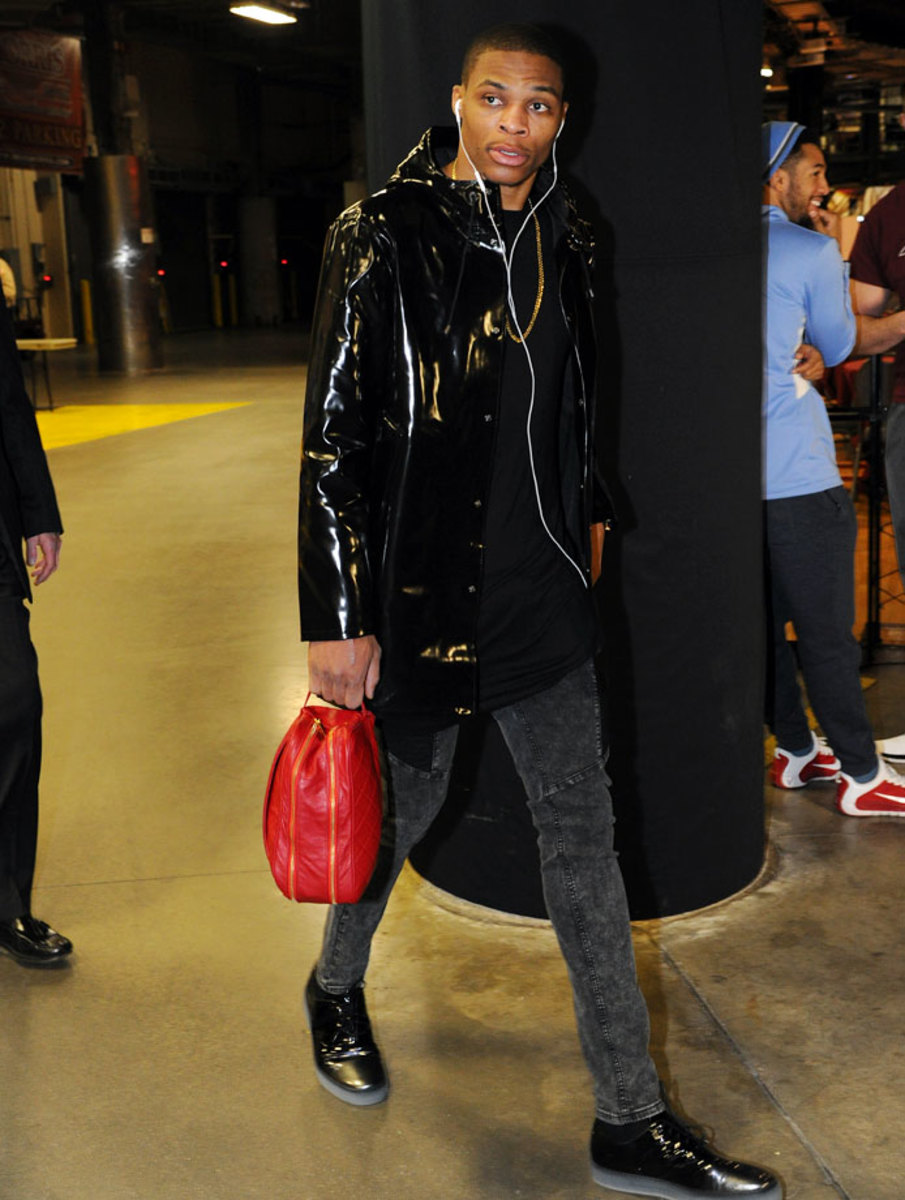
October 30, 2014

July 17, 2014

July 16, 2014
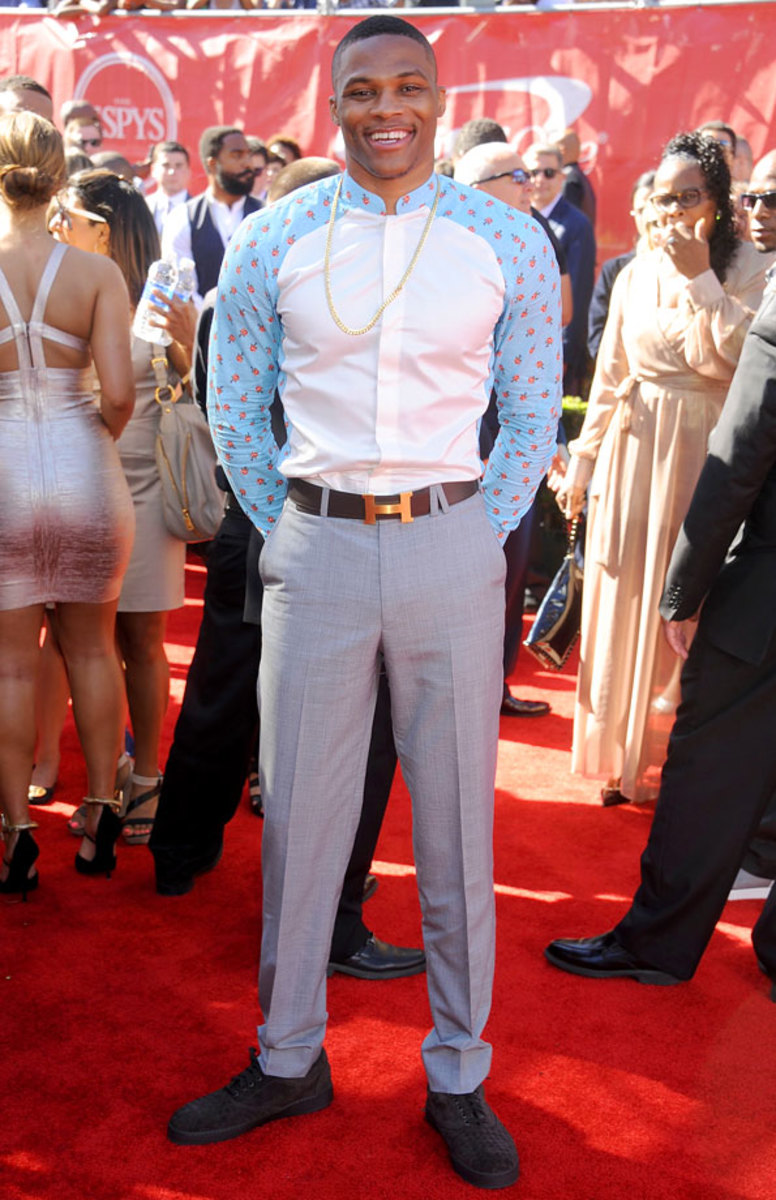
June 27, 2014
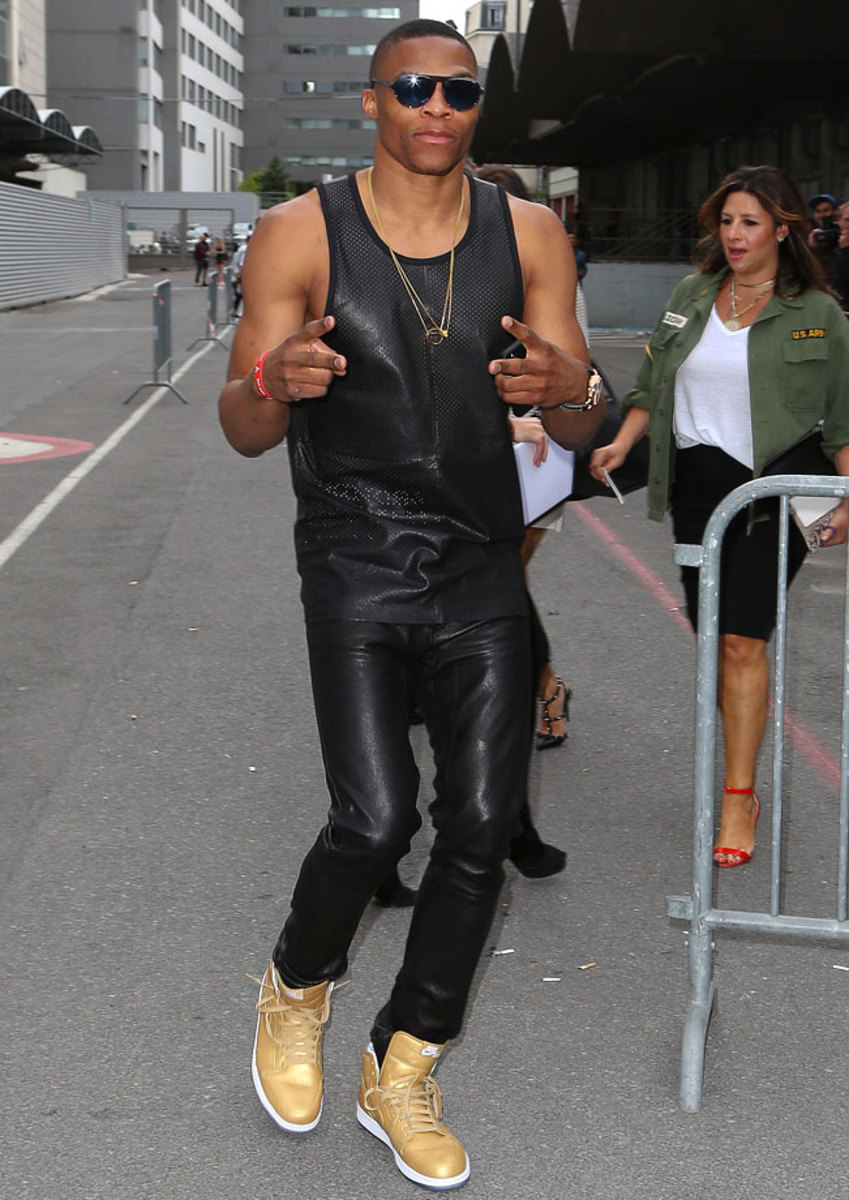
May 29, 2014
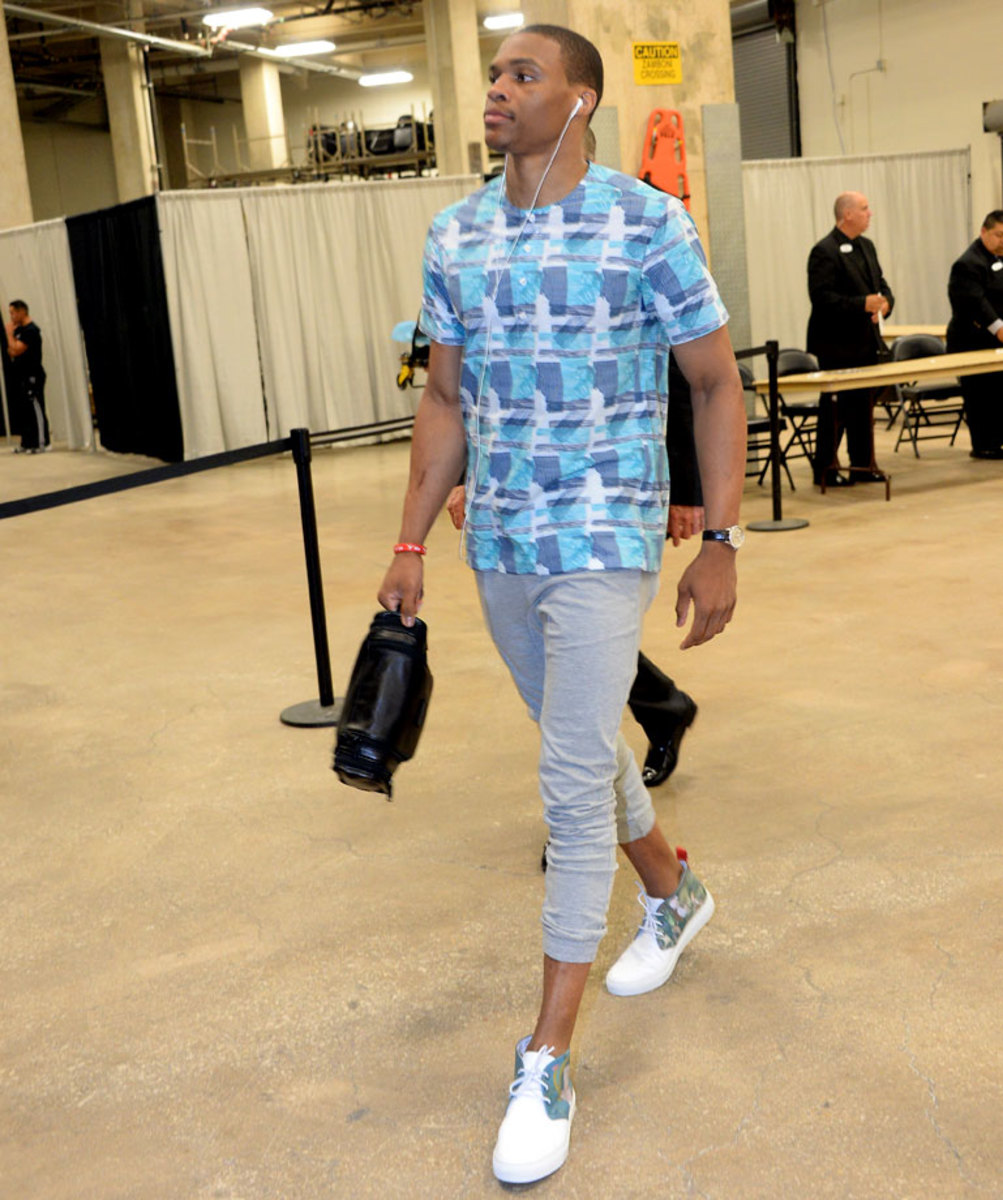

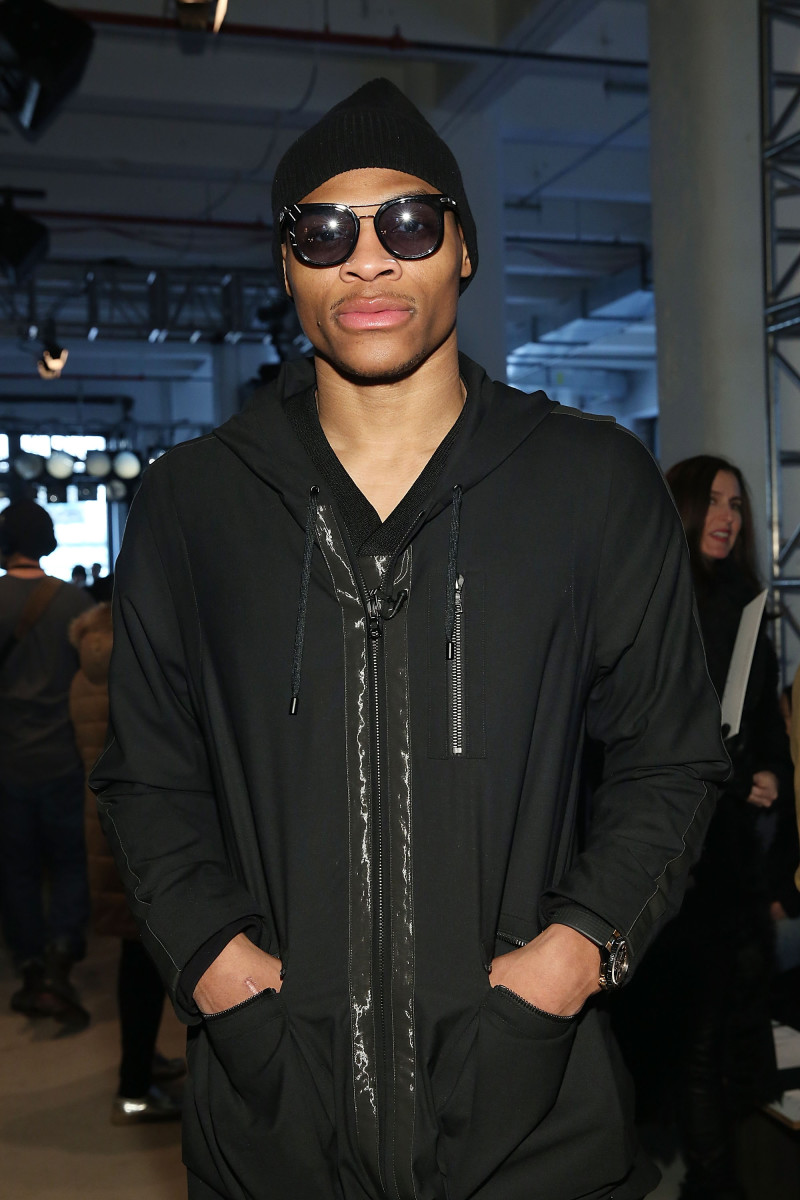
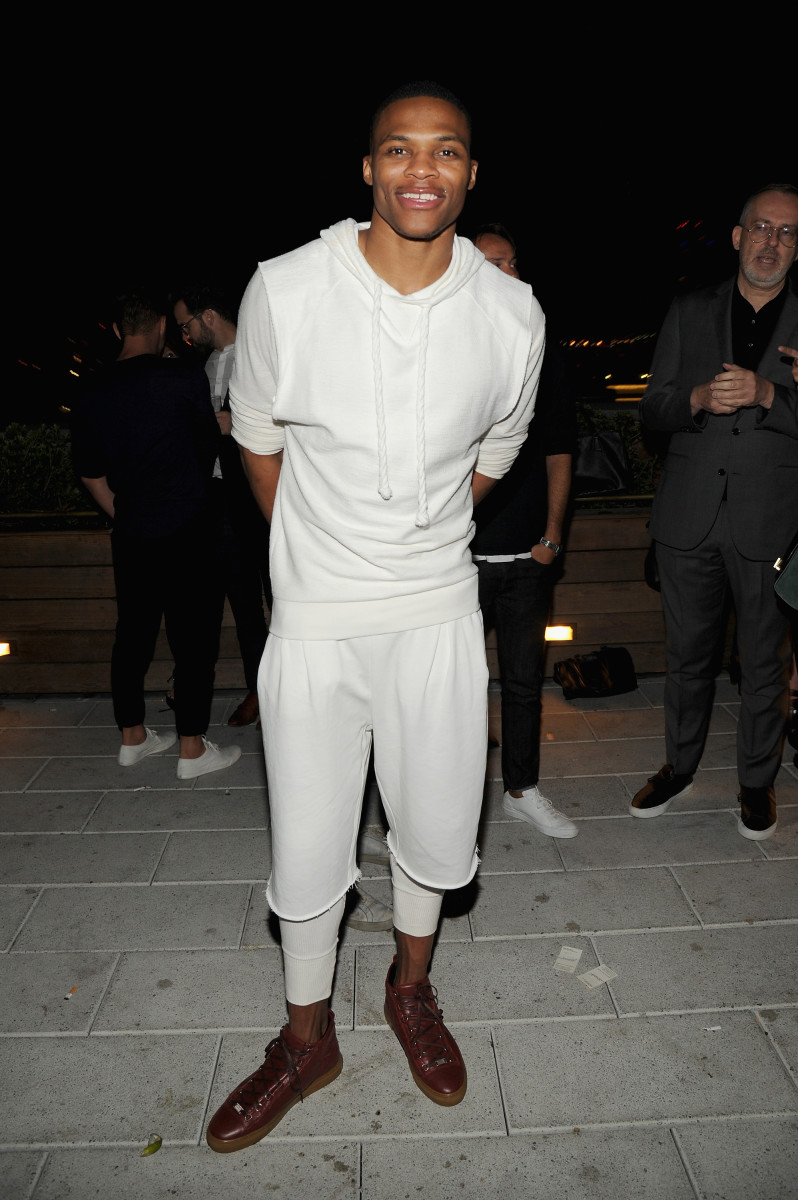
May 27, 2014
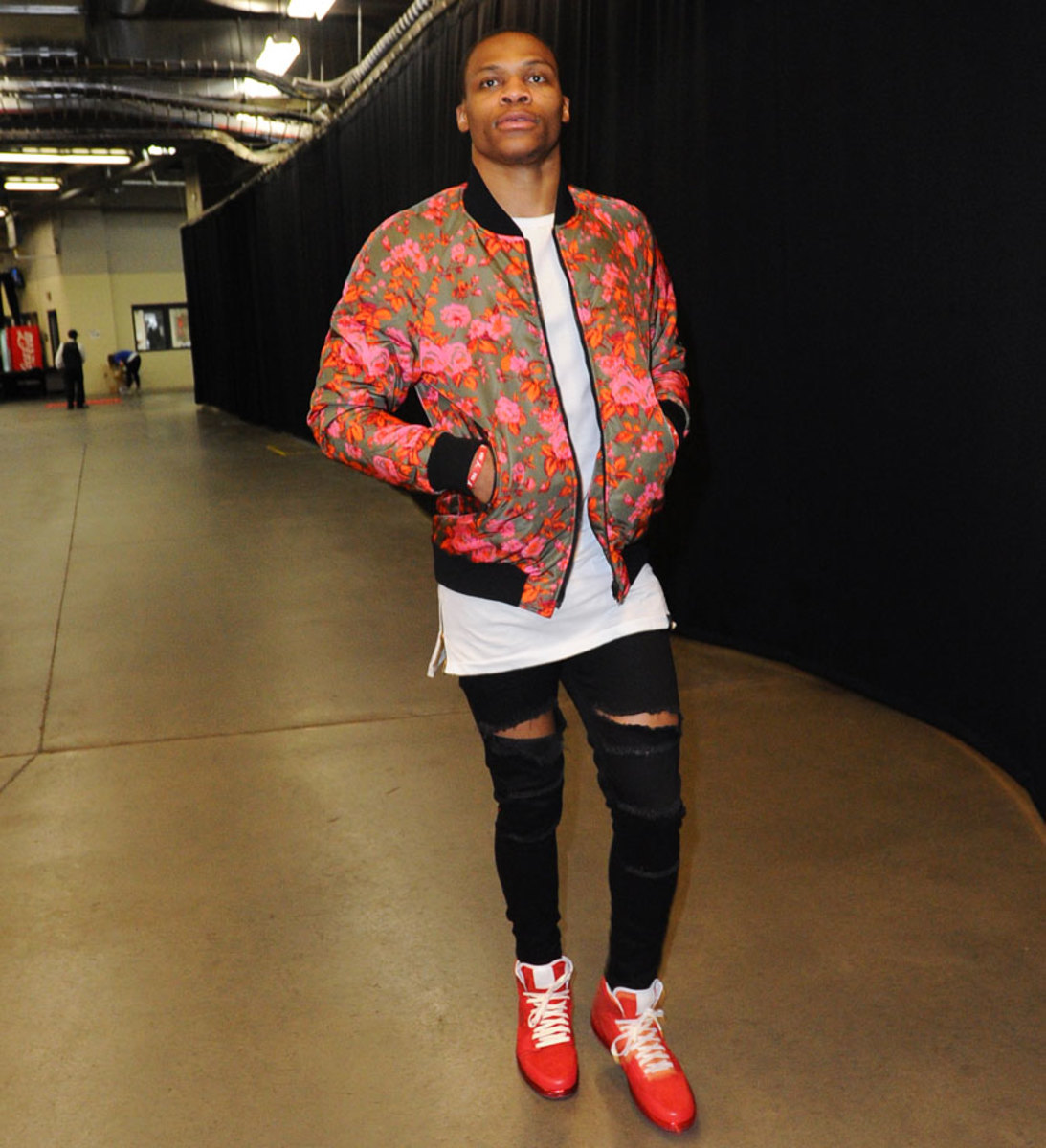
May 25, 2014
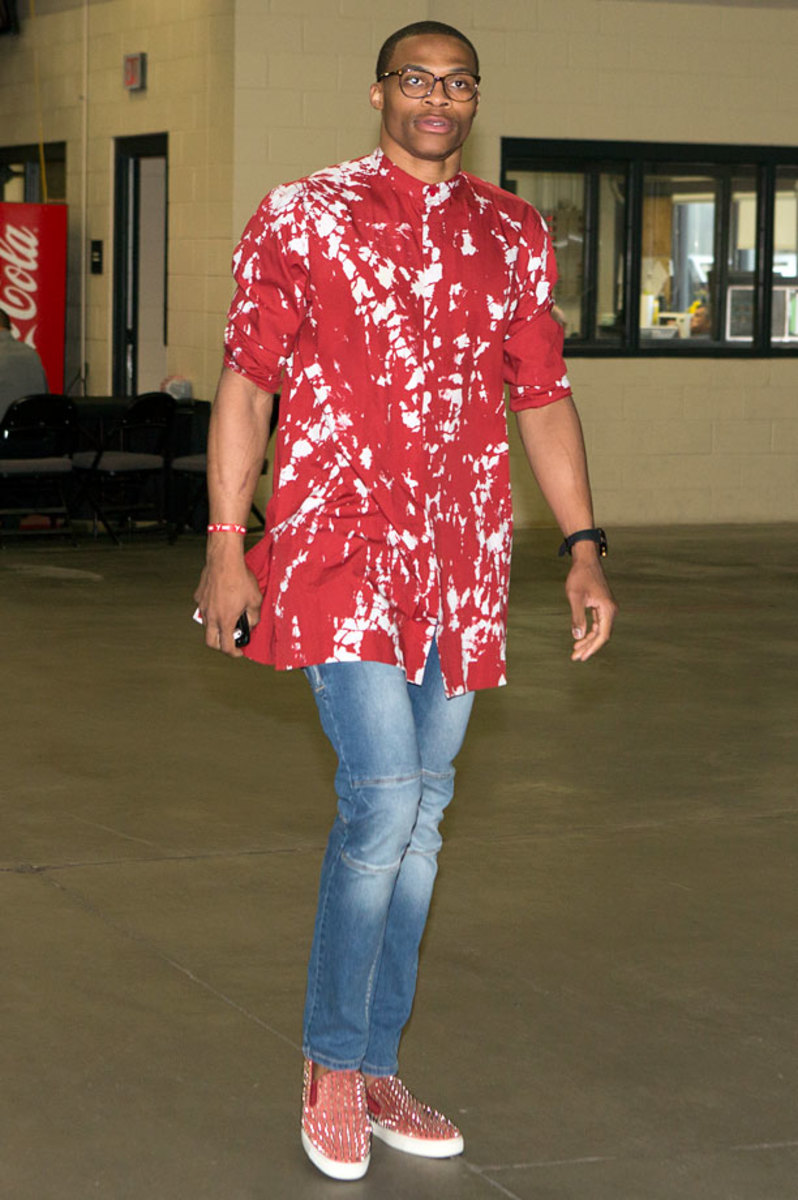
May 19, 2014
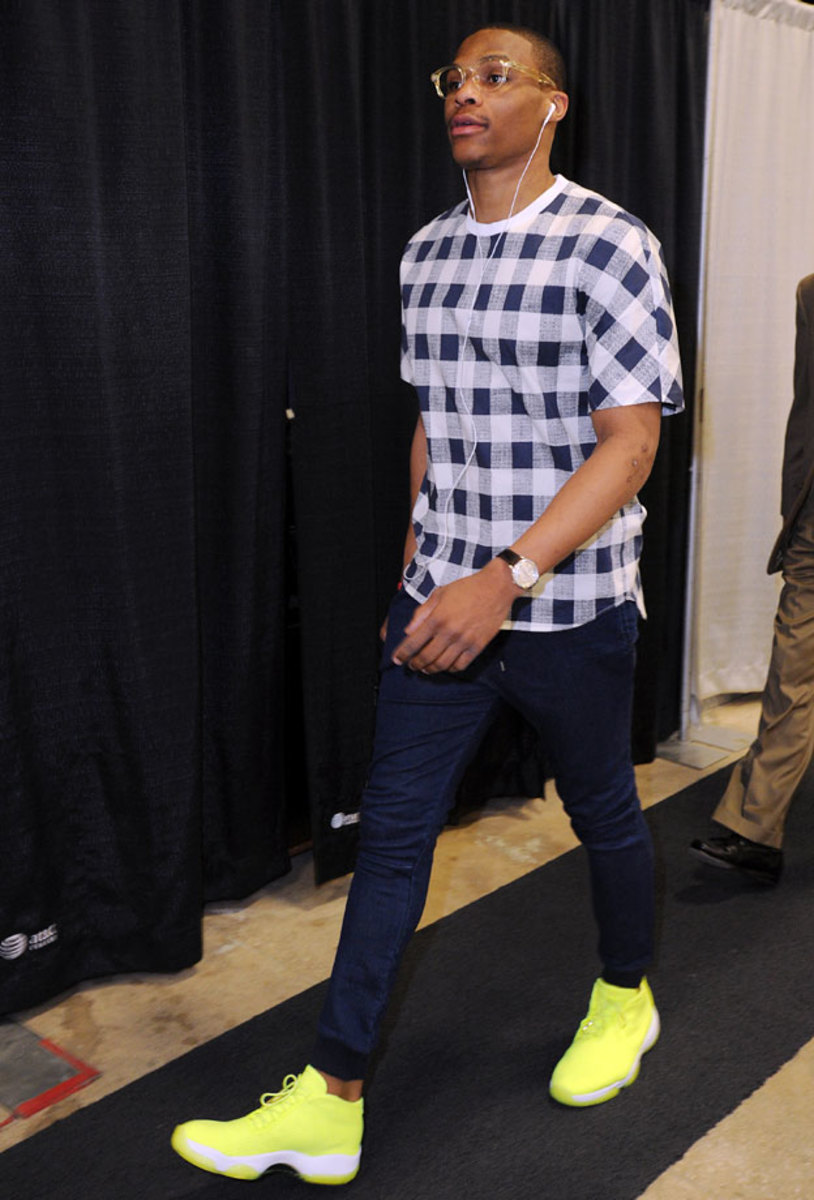
May 15, 2014
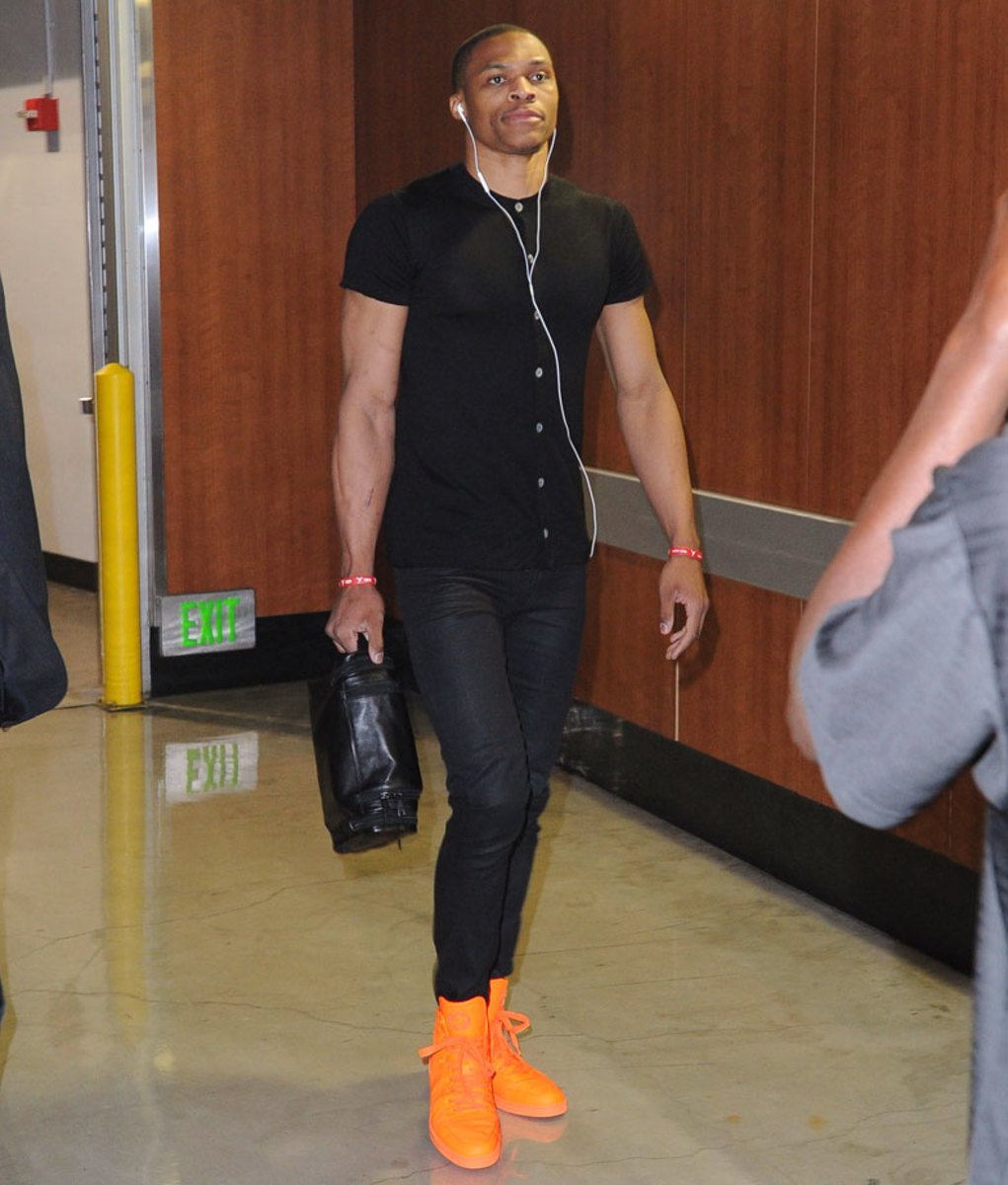
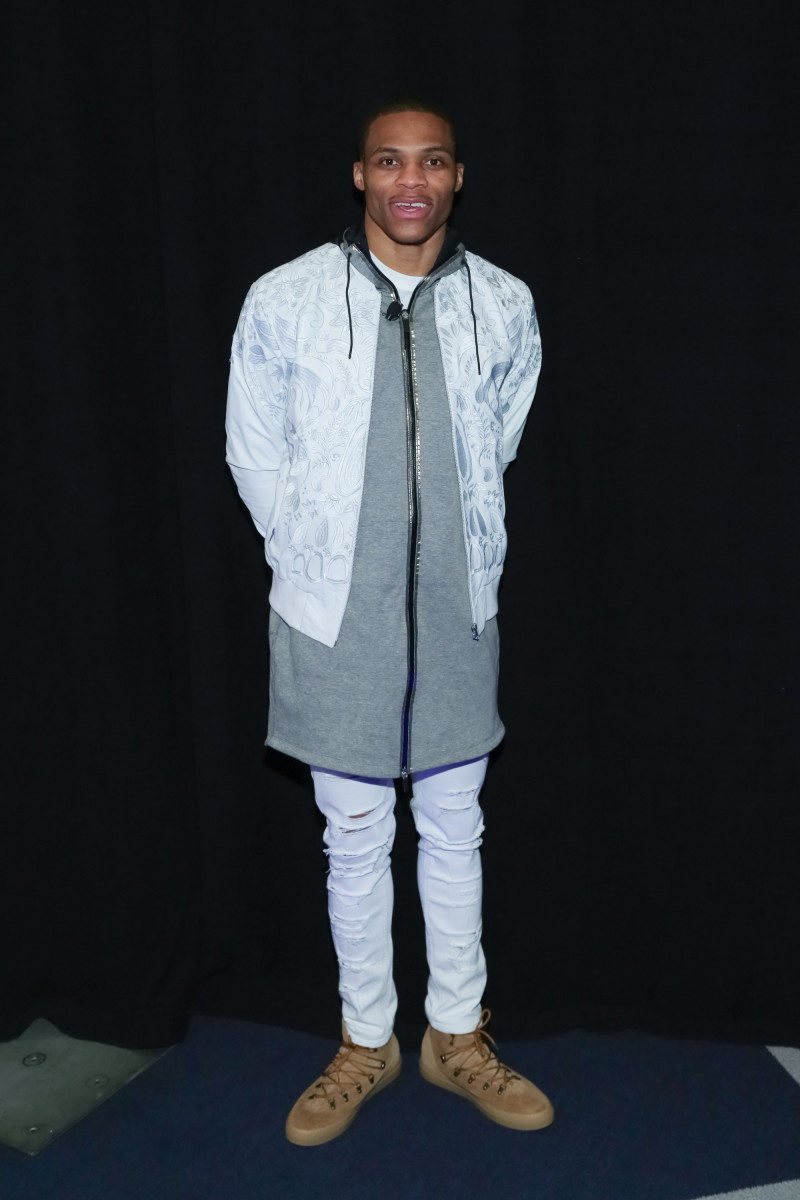
May 13, 2014
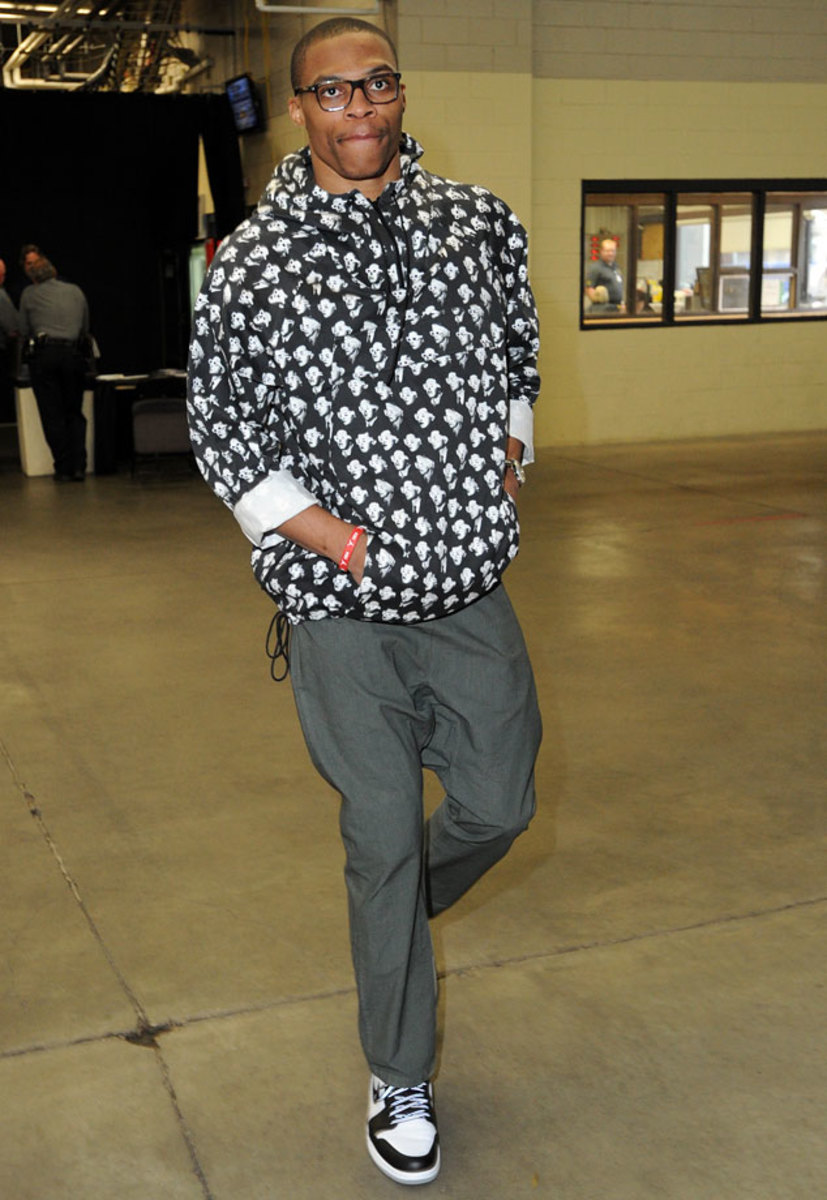
May 11, 2014
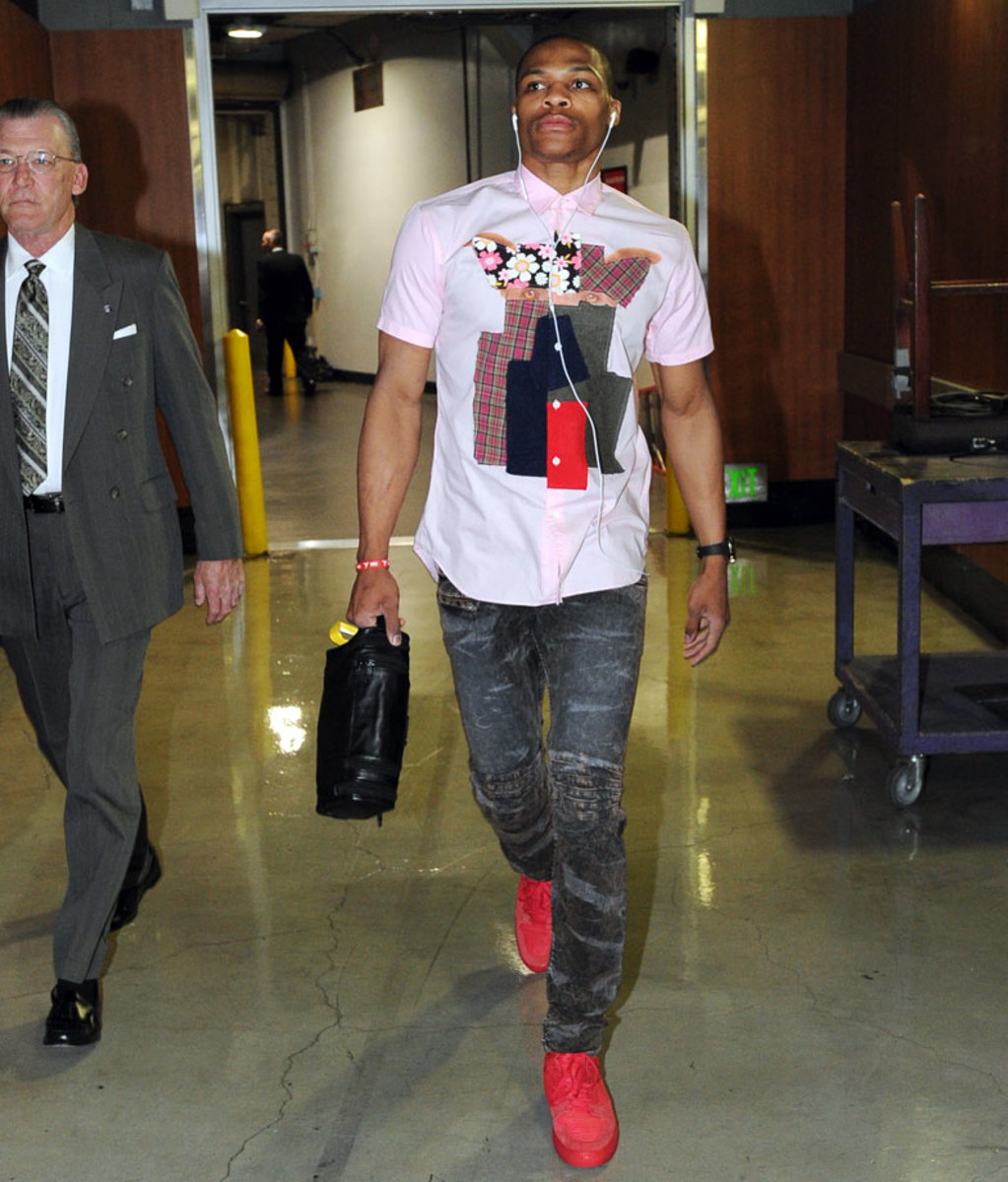
May 9, 2014
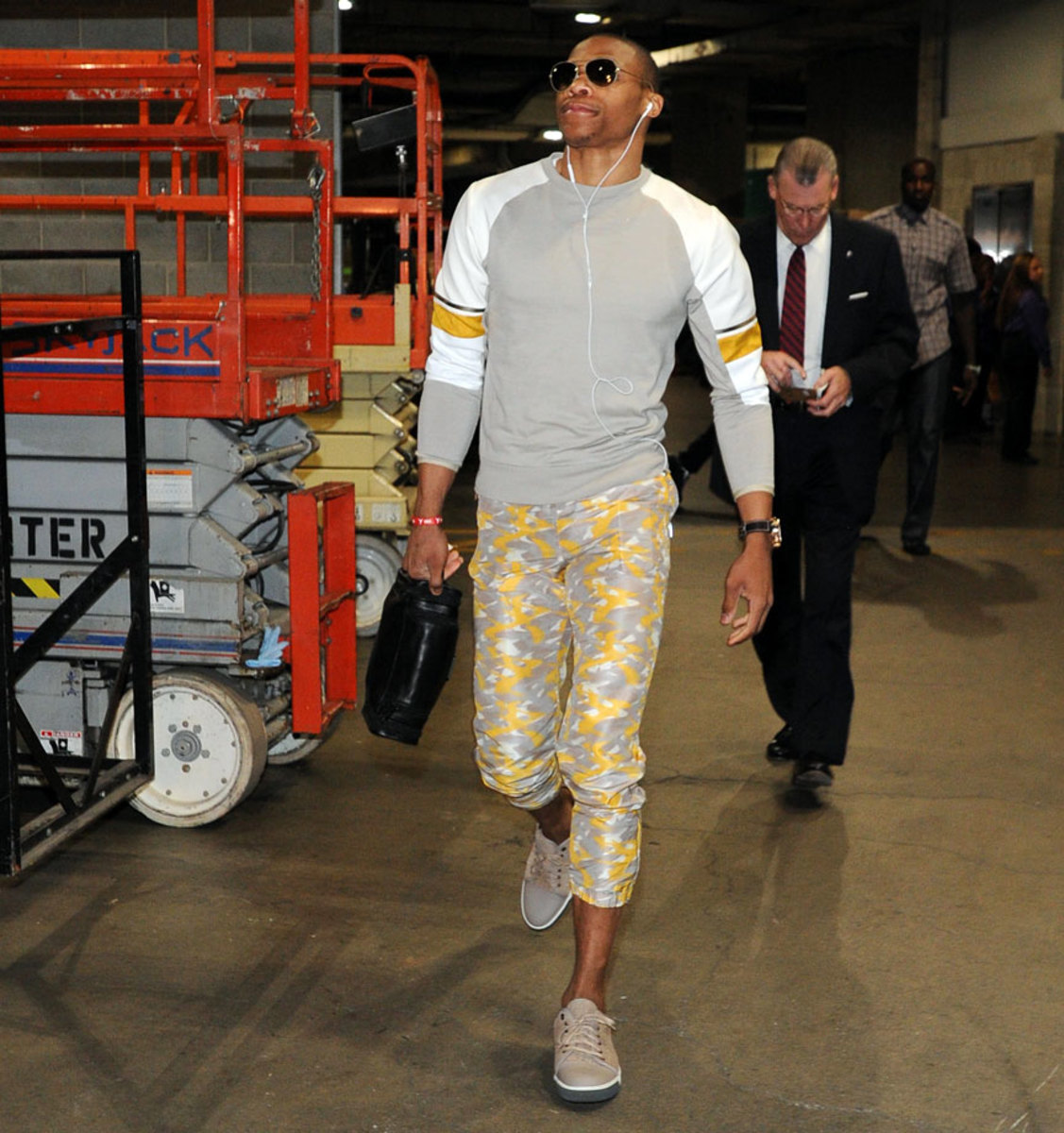
May 7, 2014
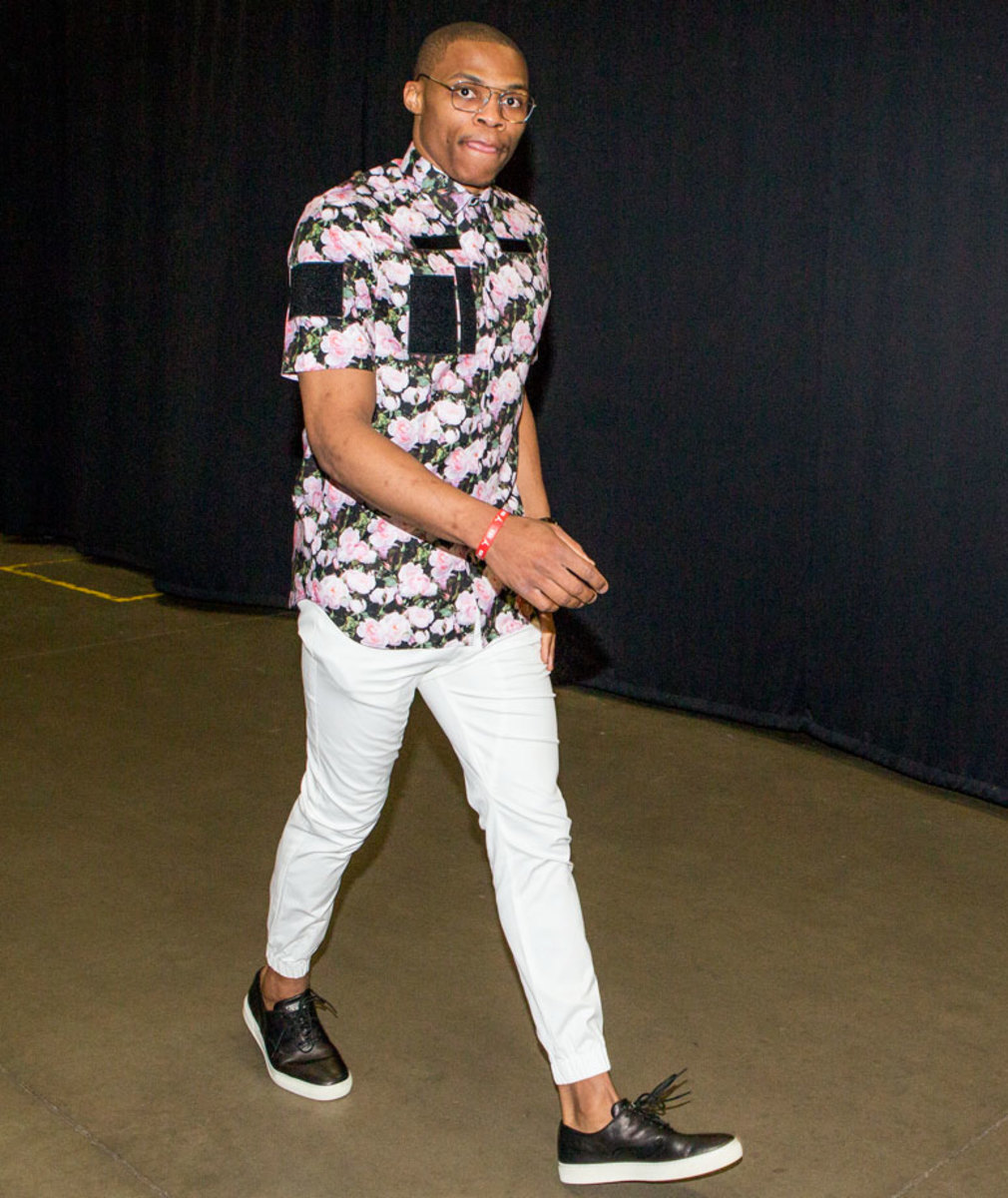
May 5, 2014

April 9, 2014
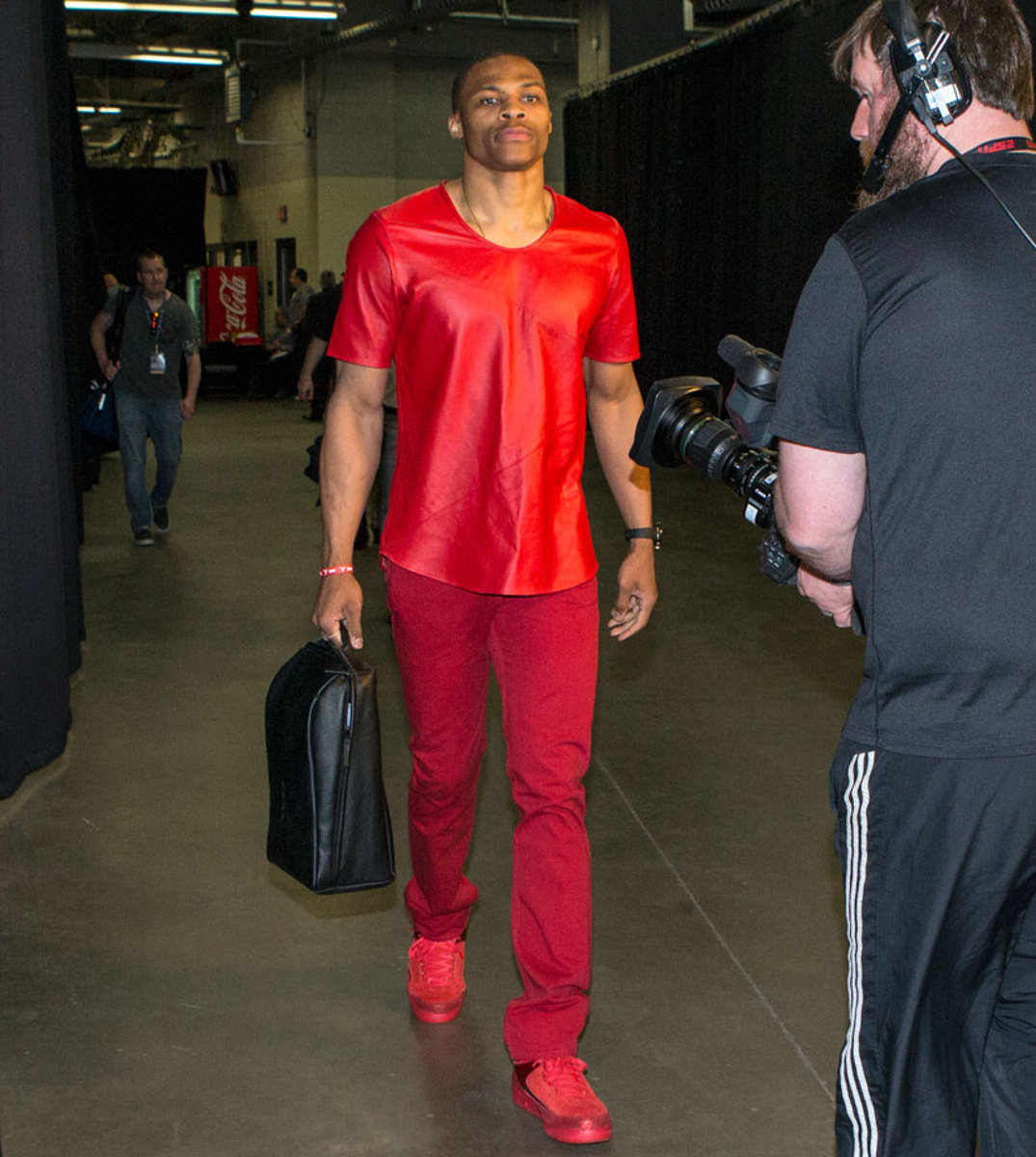
March 9, 2014
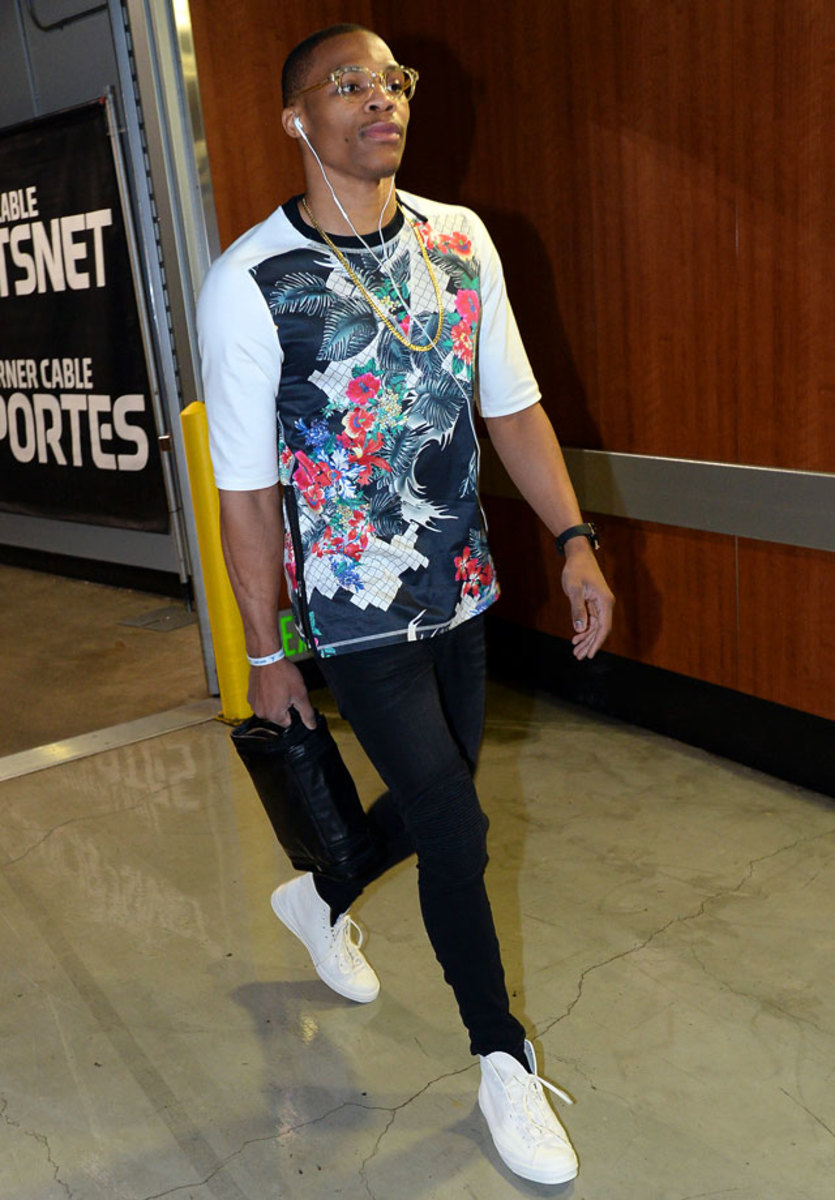
January 25, 2014
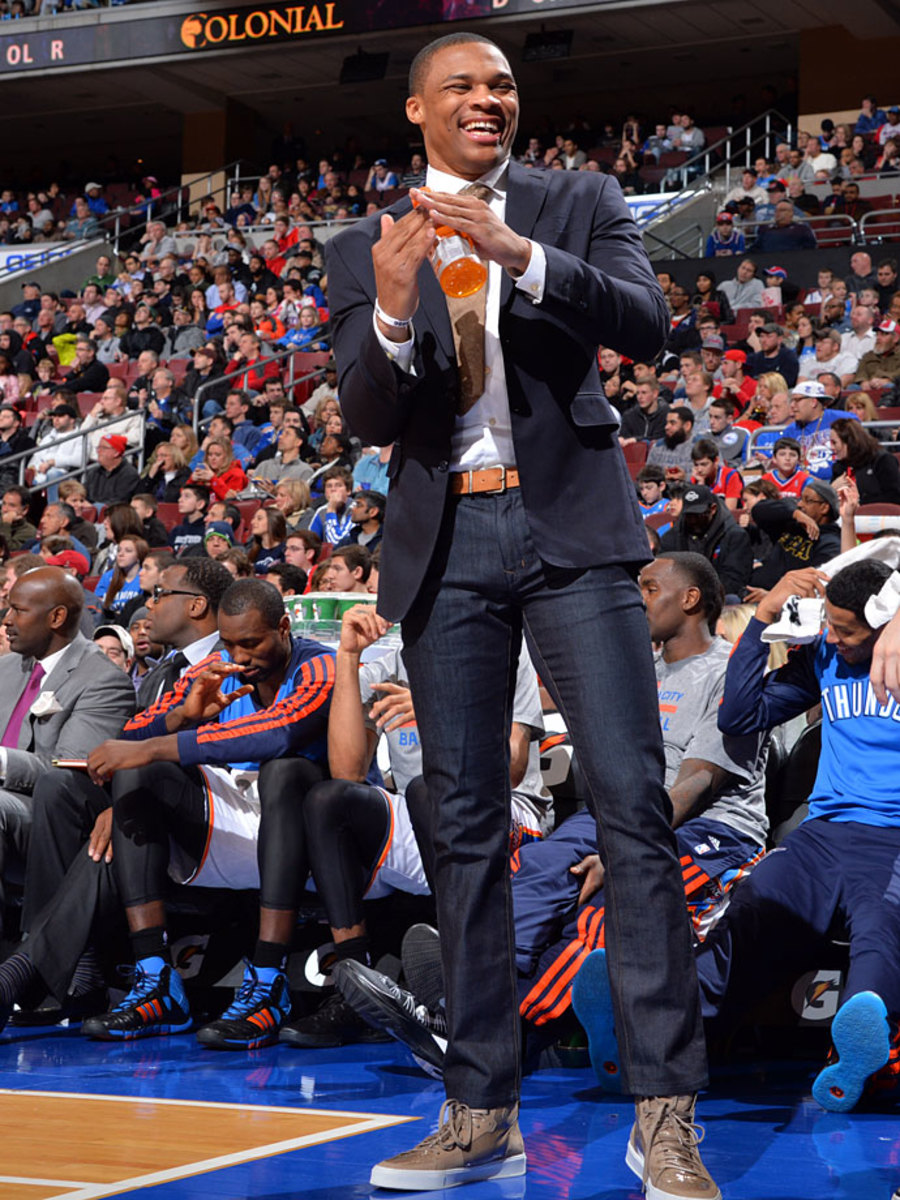
December 14, 2013
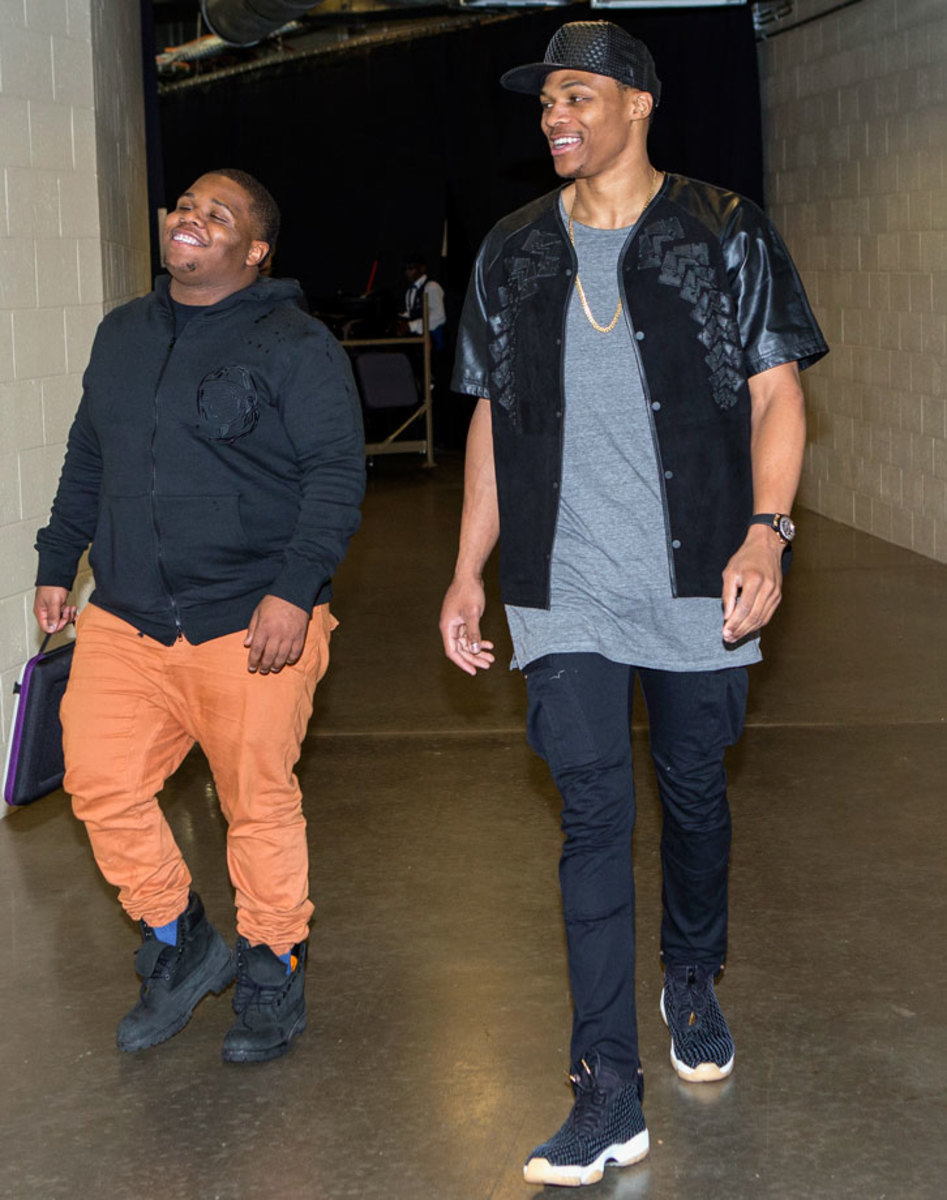
November 13, 2013
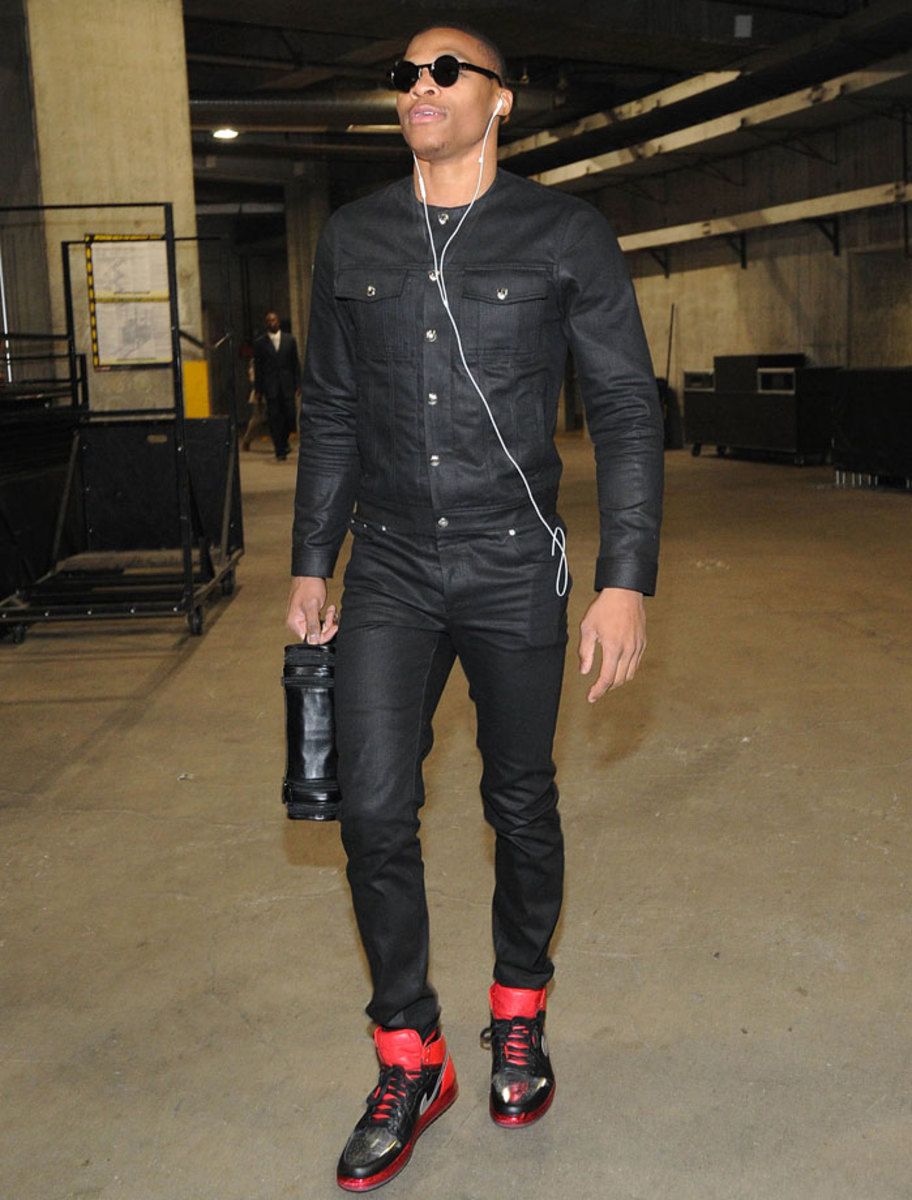
November 12, 2013
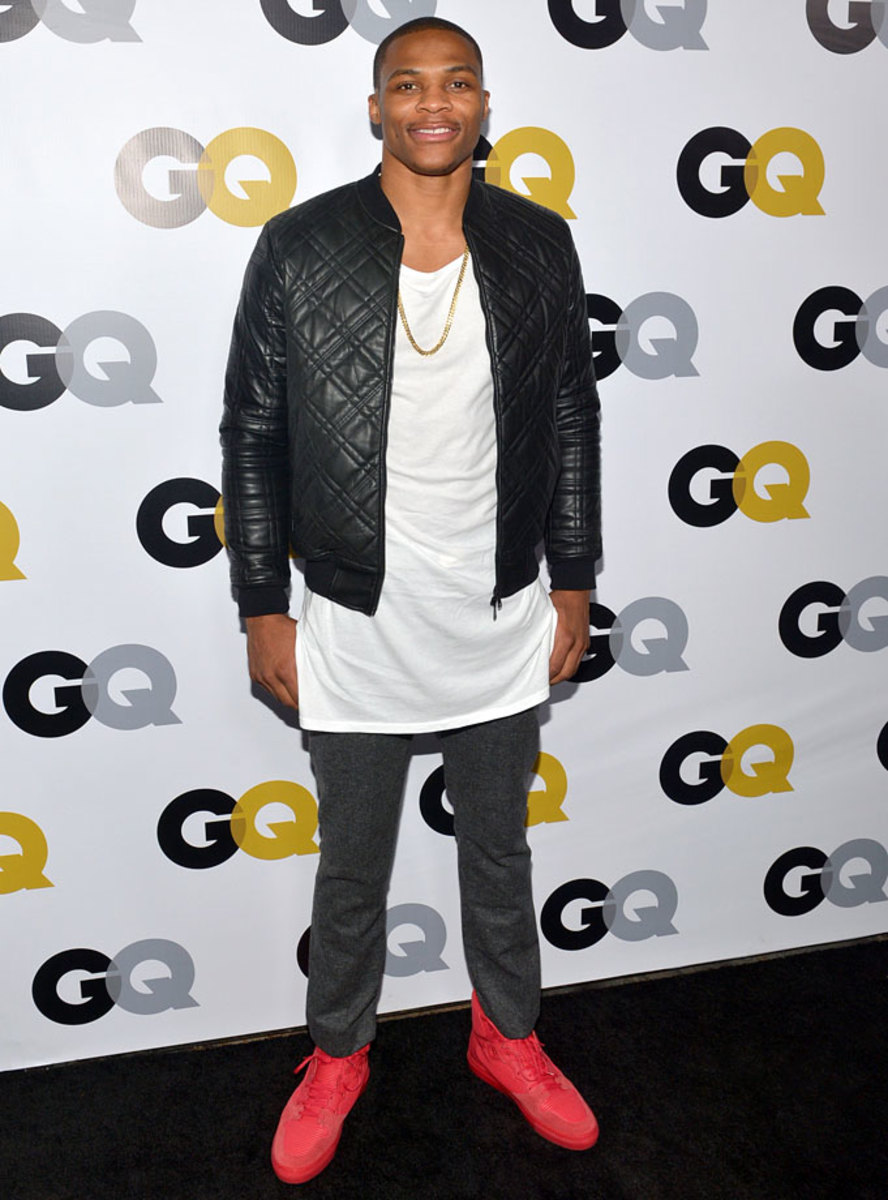
September 11, 2013
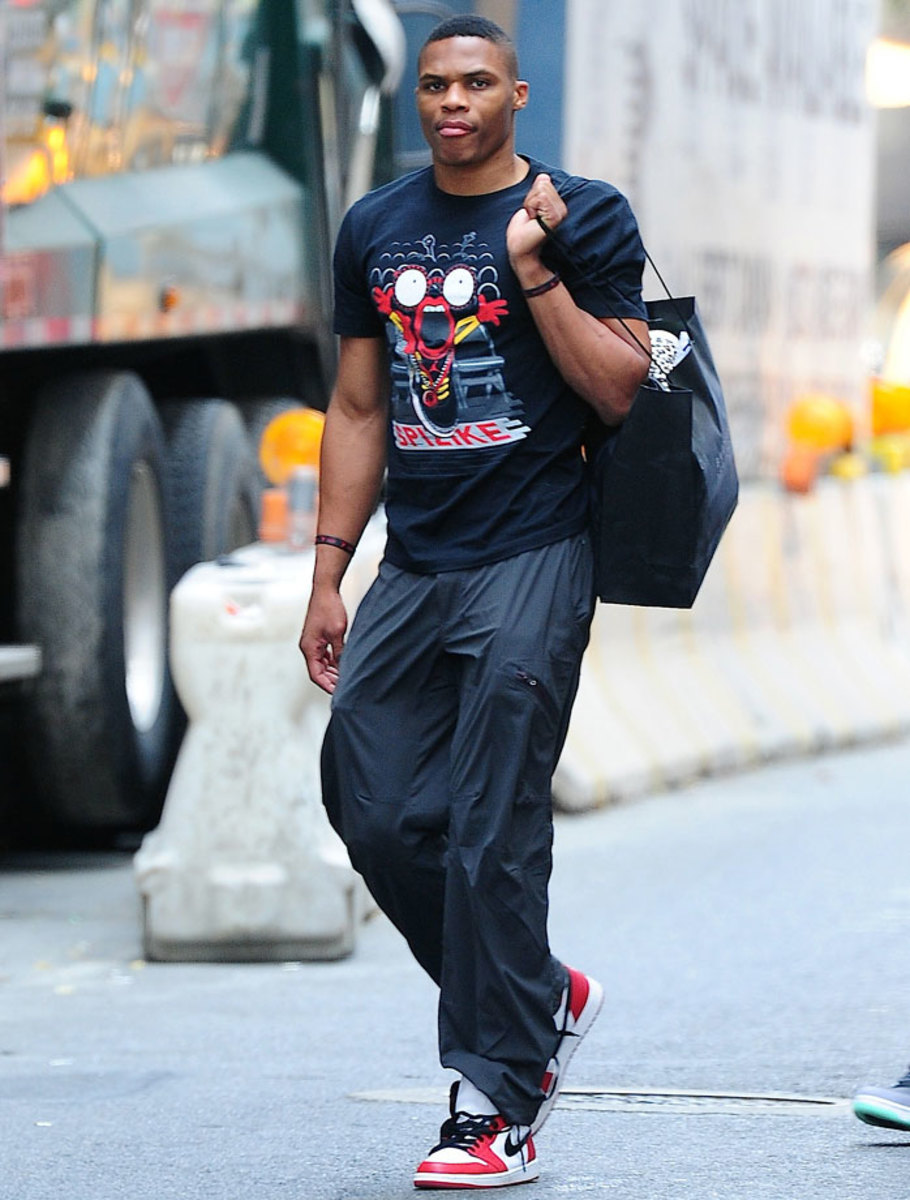
September 6, 2013
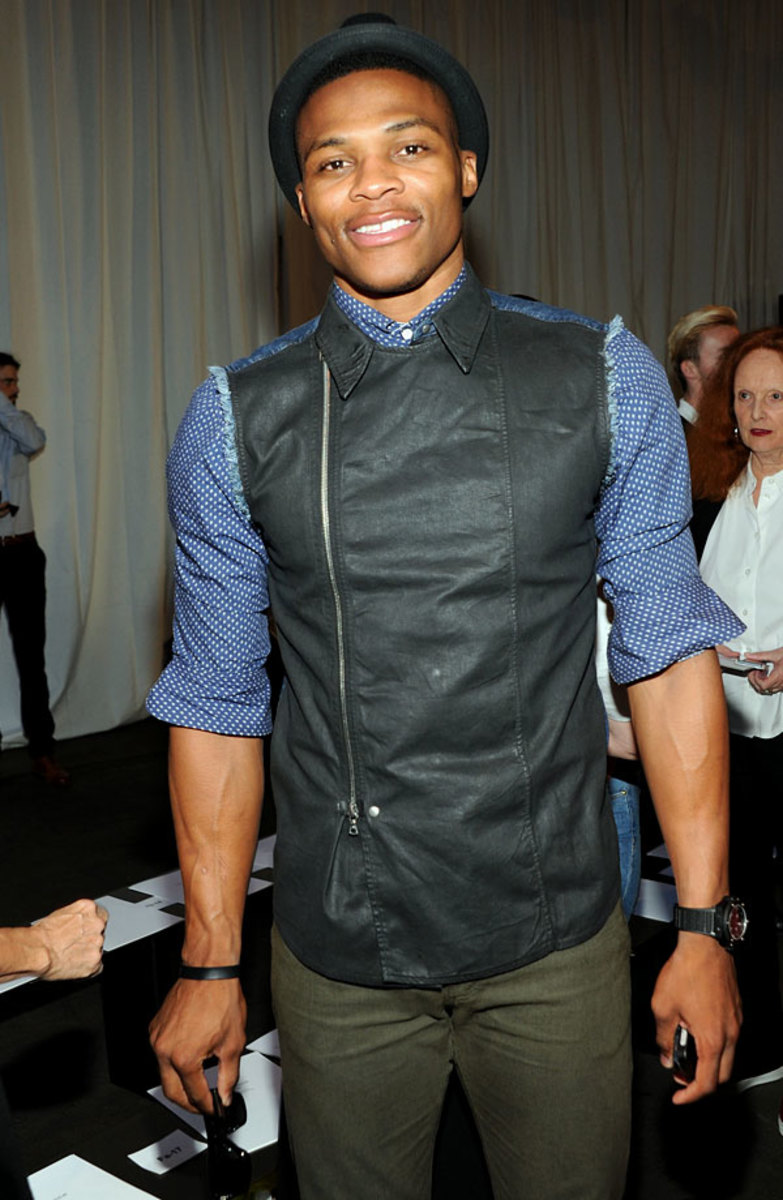
August 11, 2013
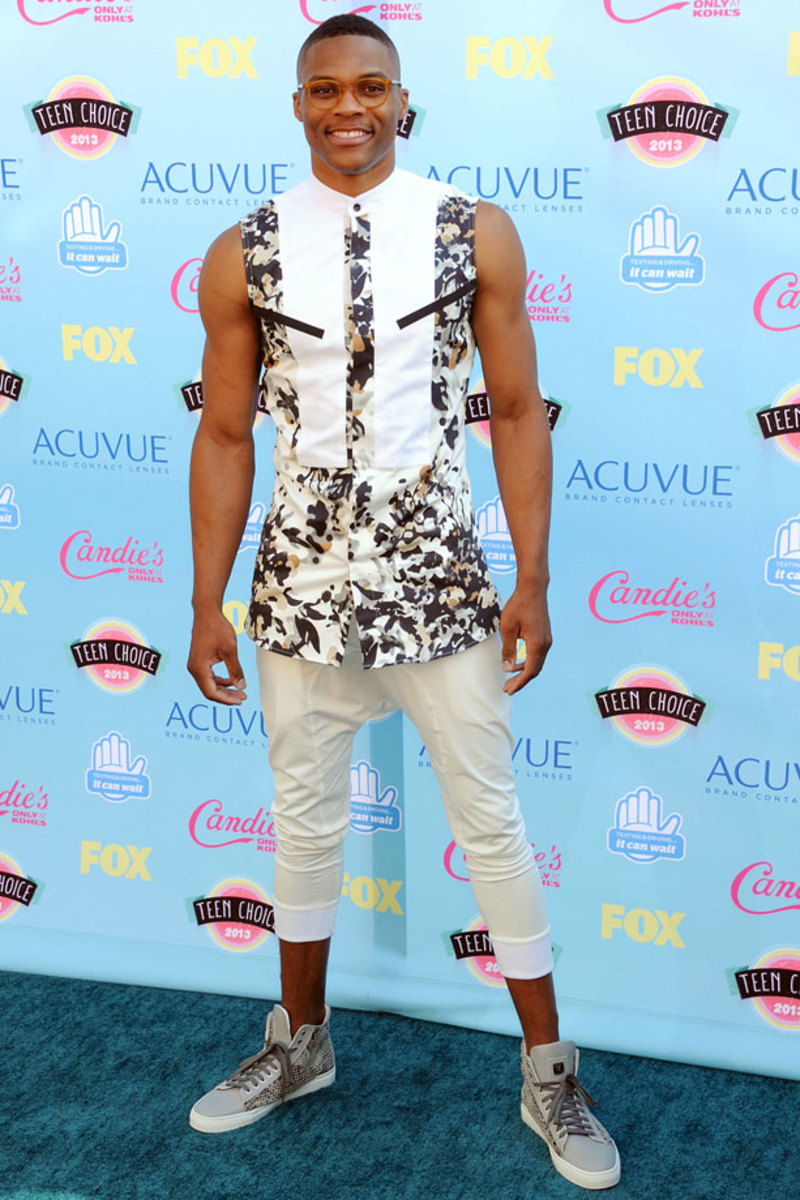
March 3, 2013
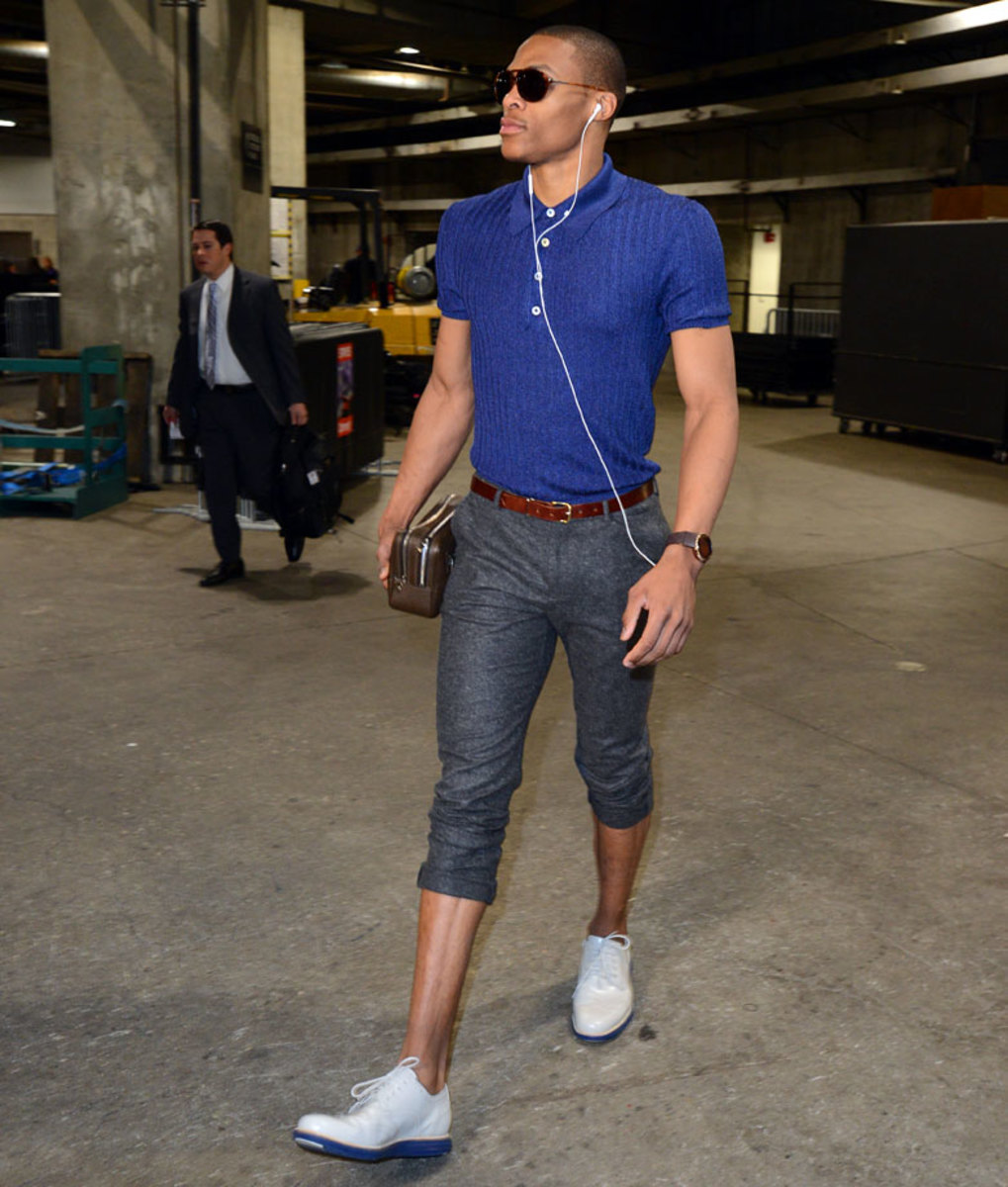
February 17, 2013

with Joakim Noah and Kevin Durant
February 15, 2013
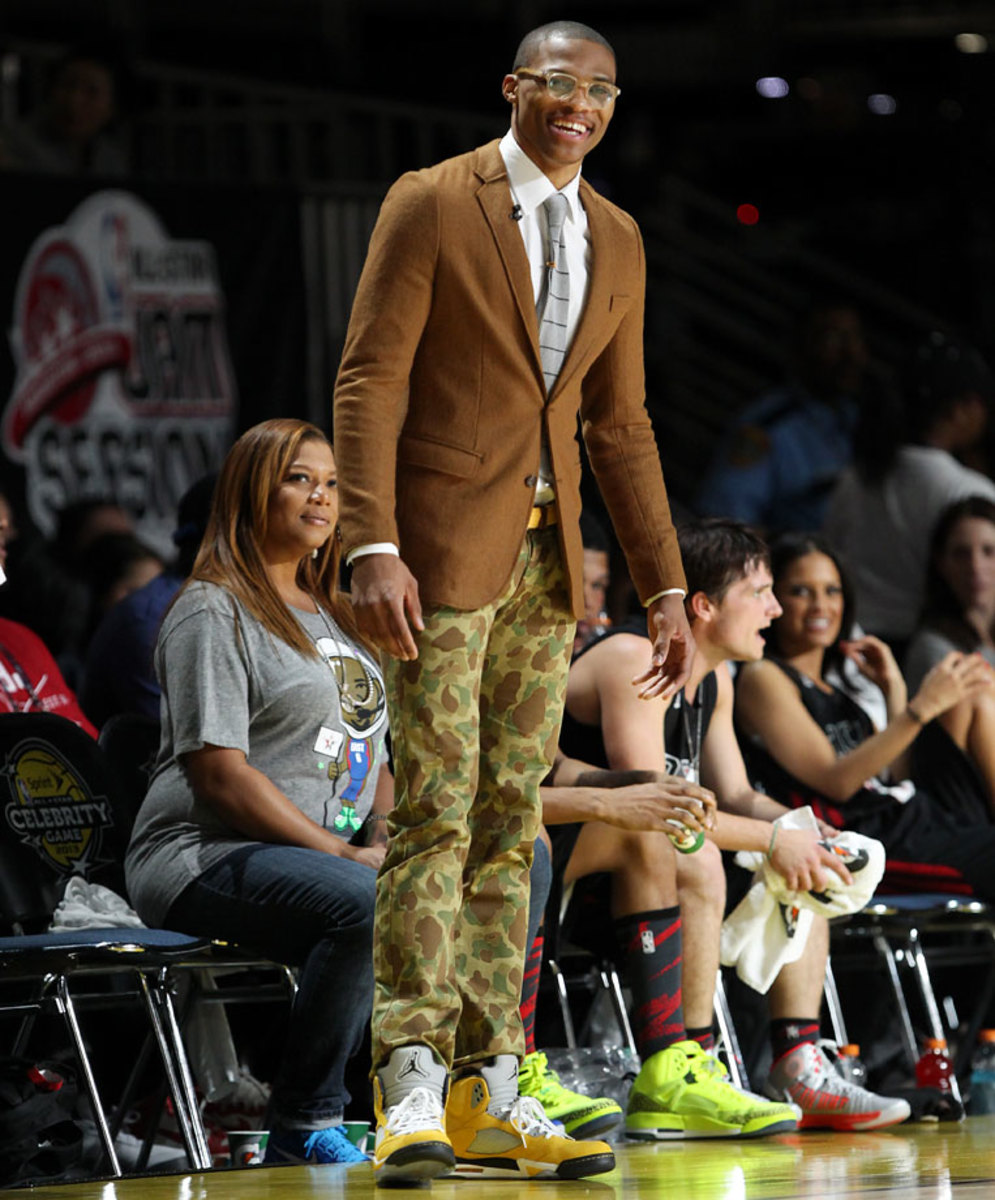
September 8, 2012

September 6, 2012
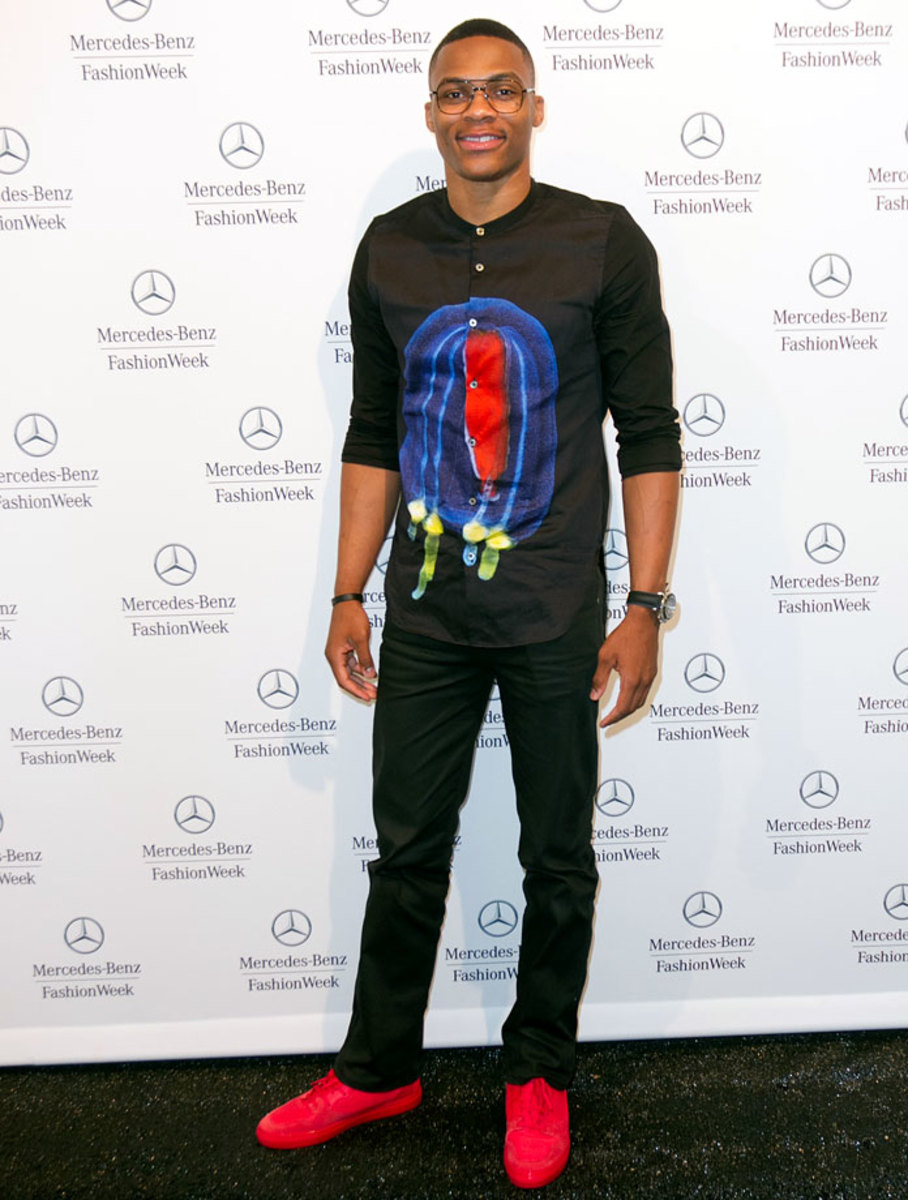
September 6, 2012

June 21, 2012
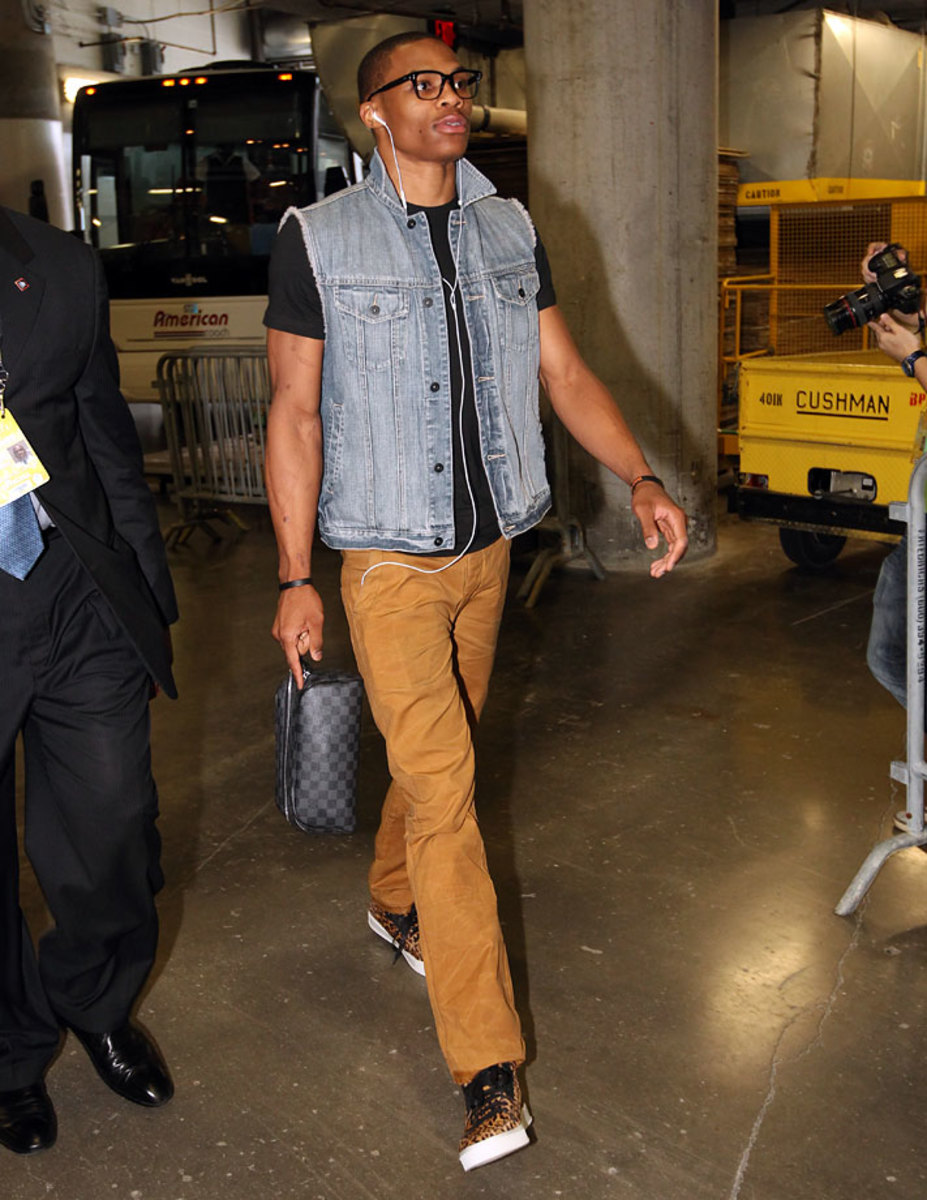
June 19, 2012
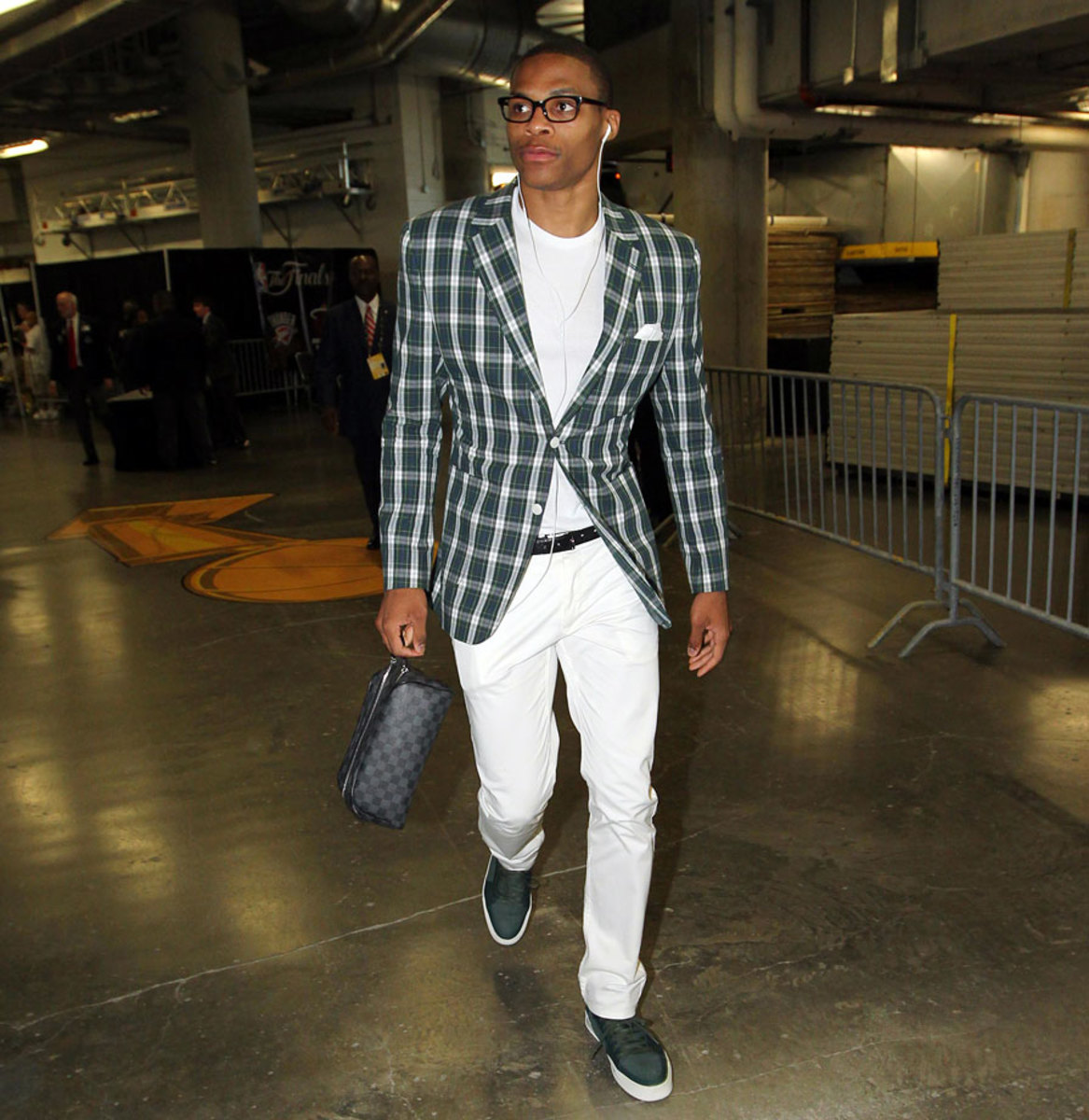
June 17, 2012
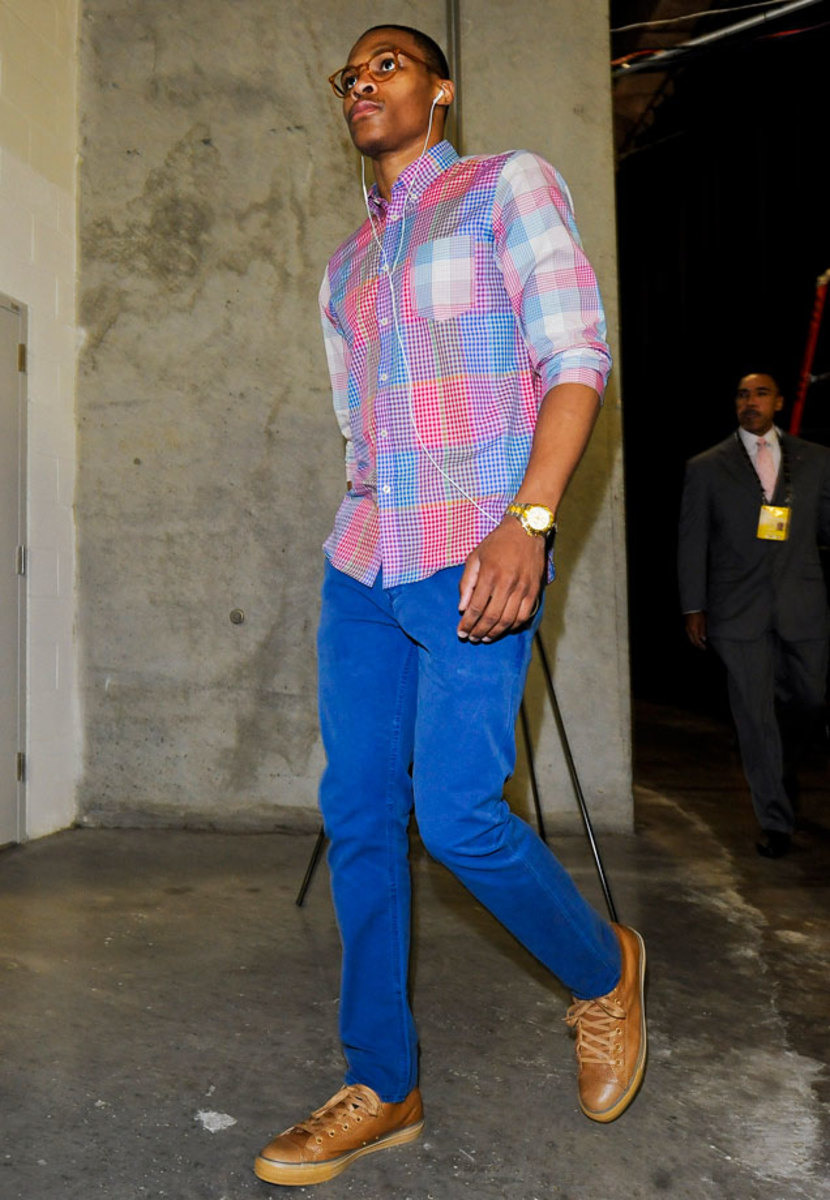
June 14, 2012
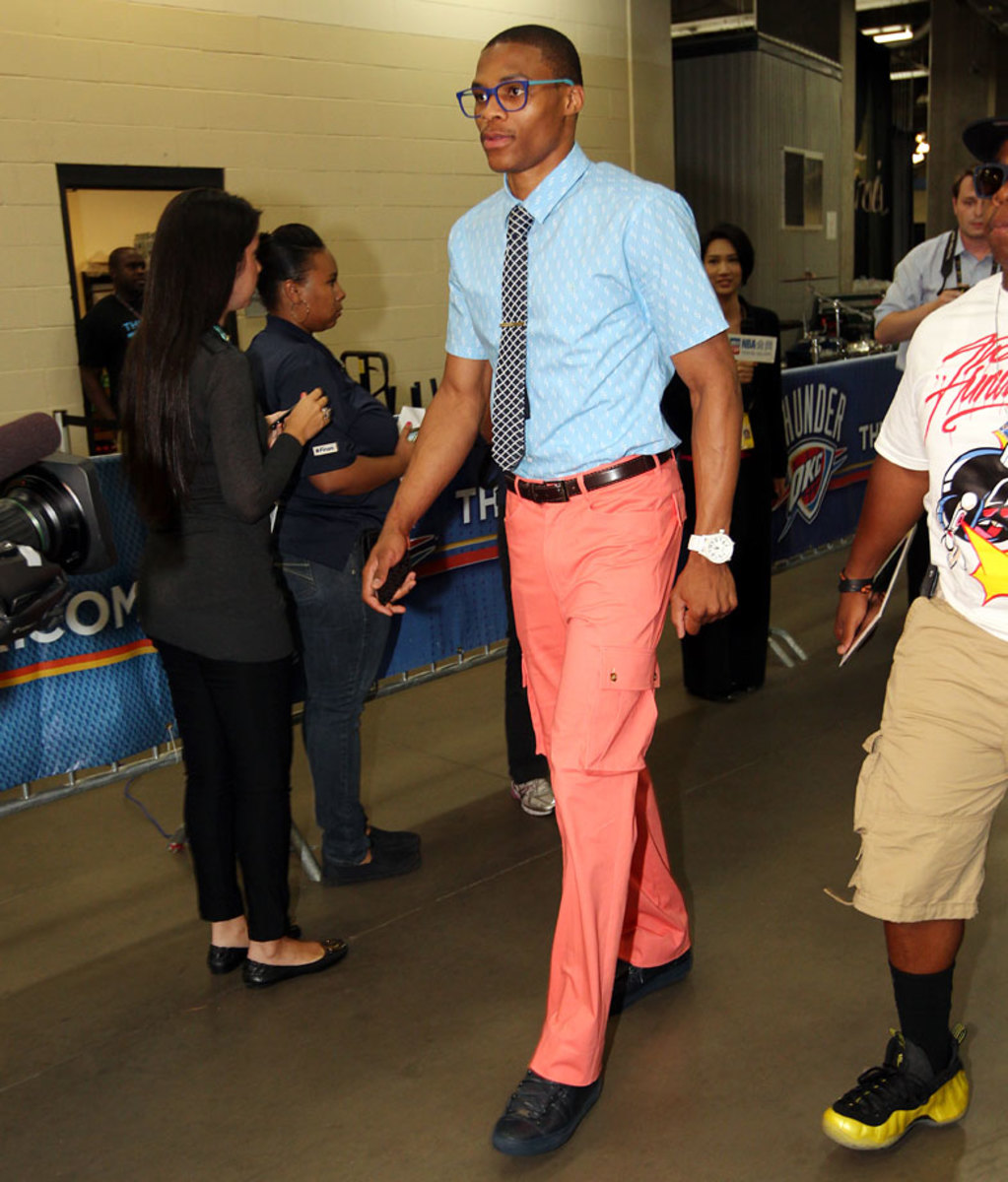
June 12, 2012
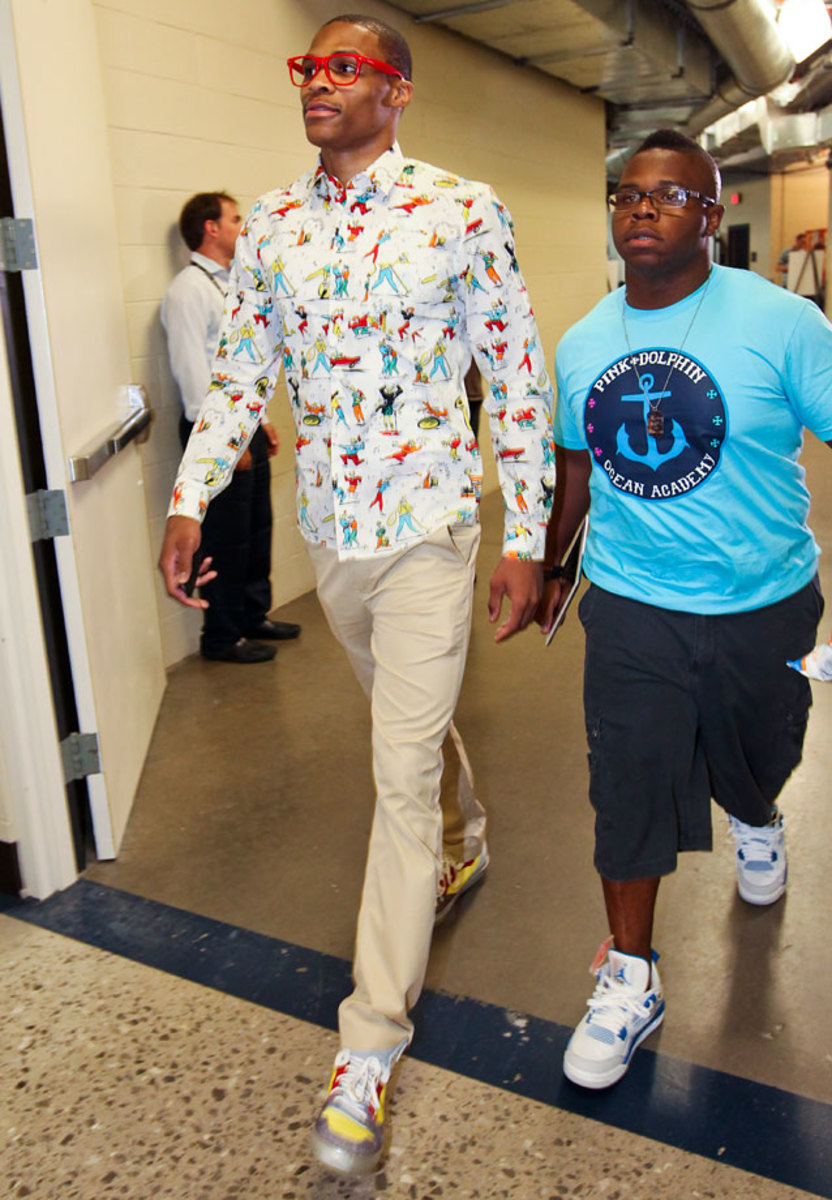
May 29, 2012
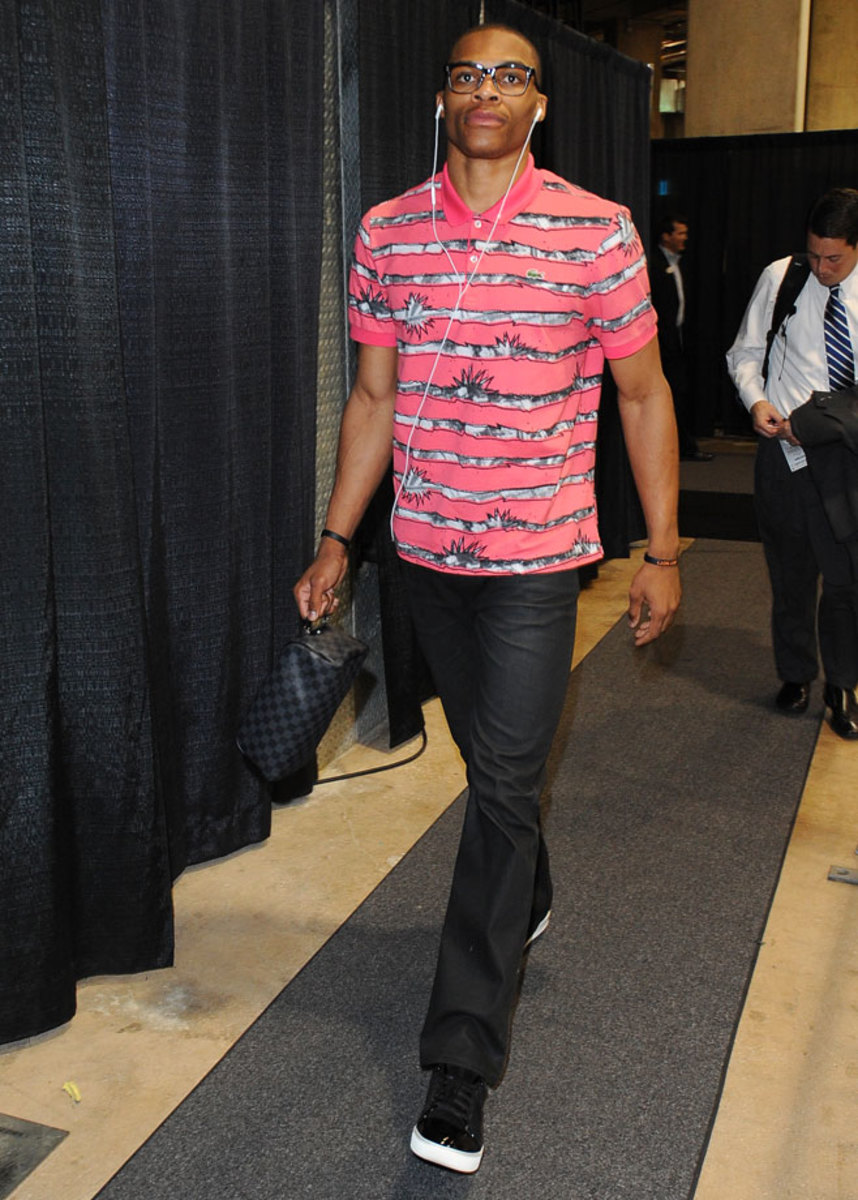
May 27, 2012
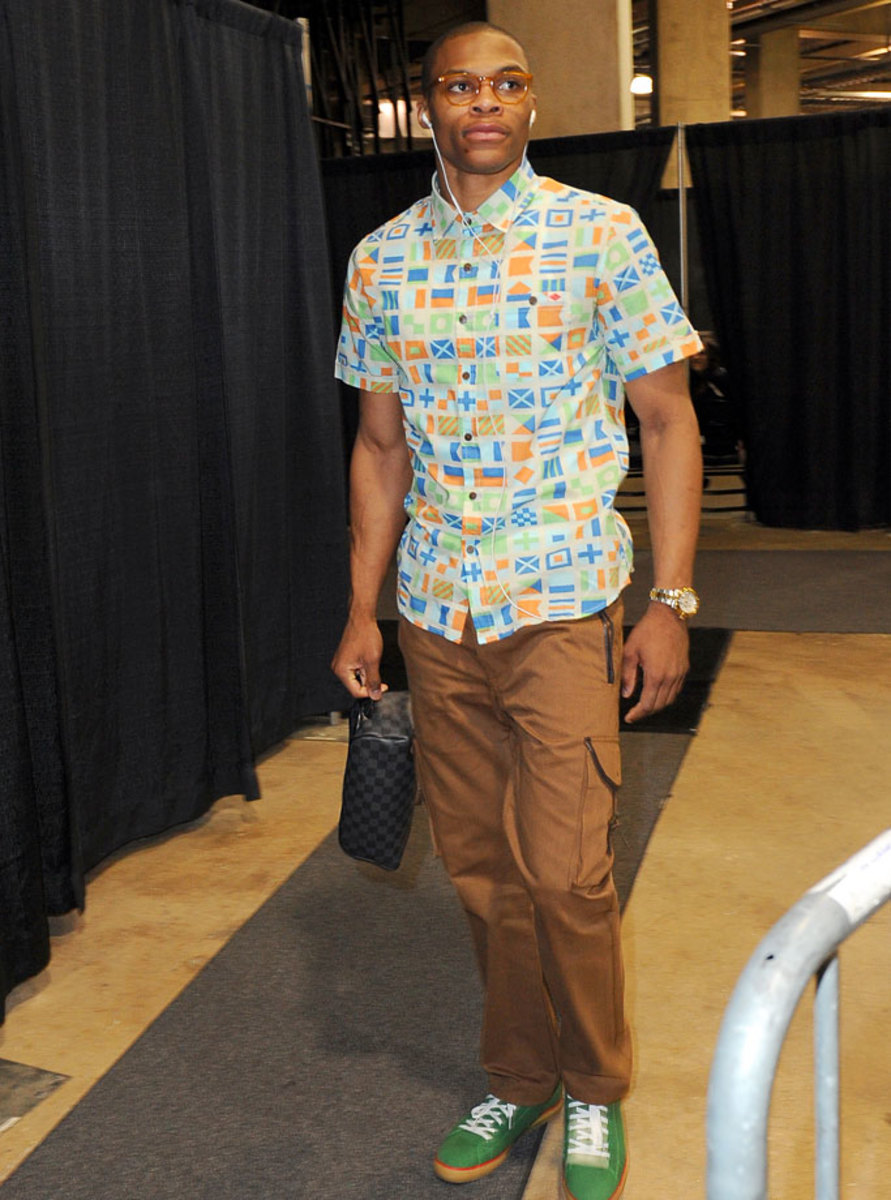
May 18, 2012
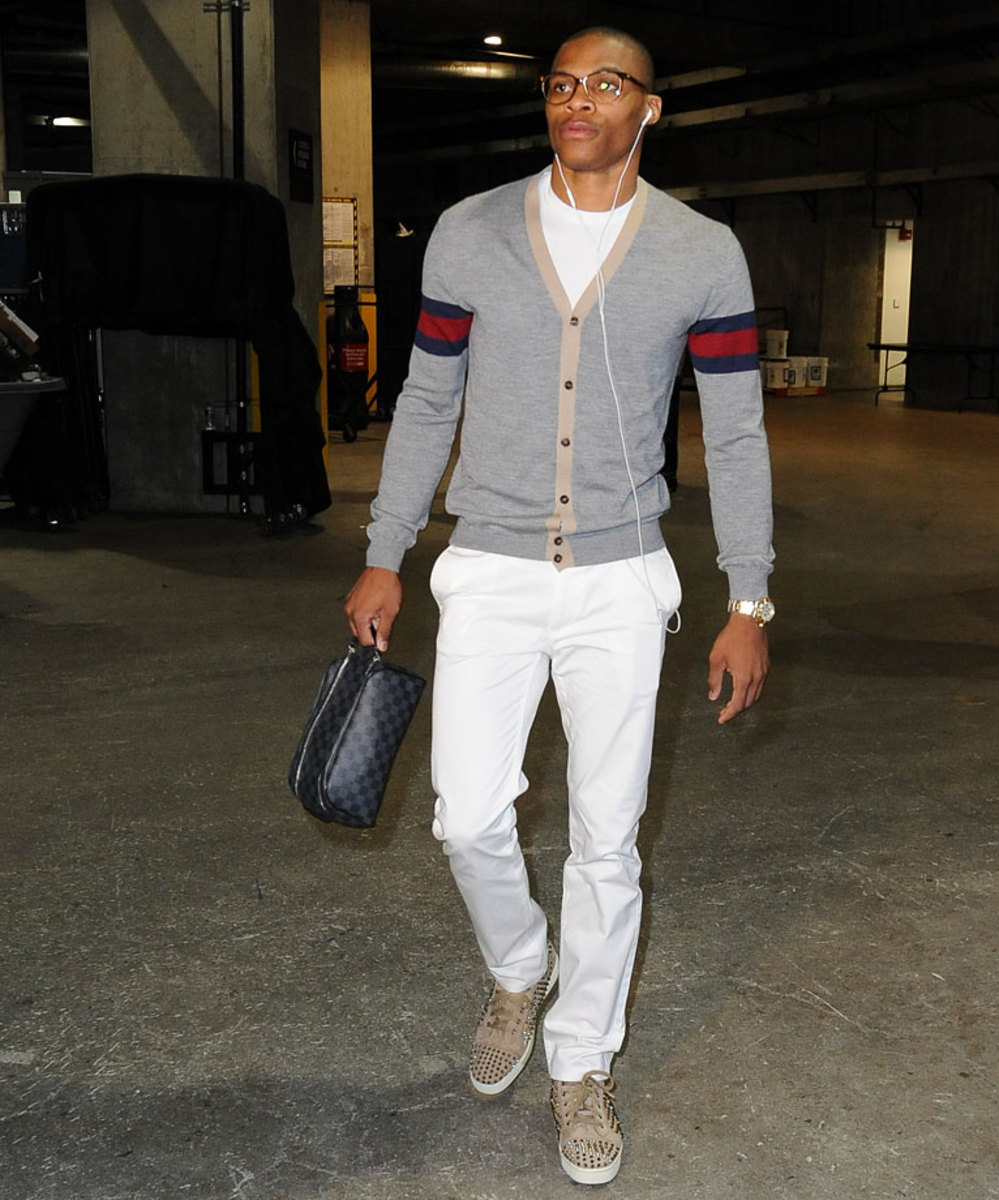
May 14, 2012

July 13, 2011
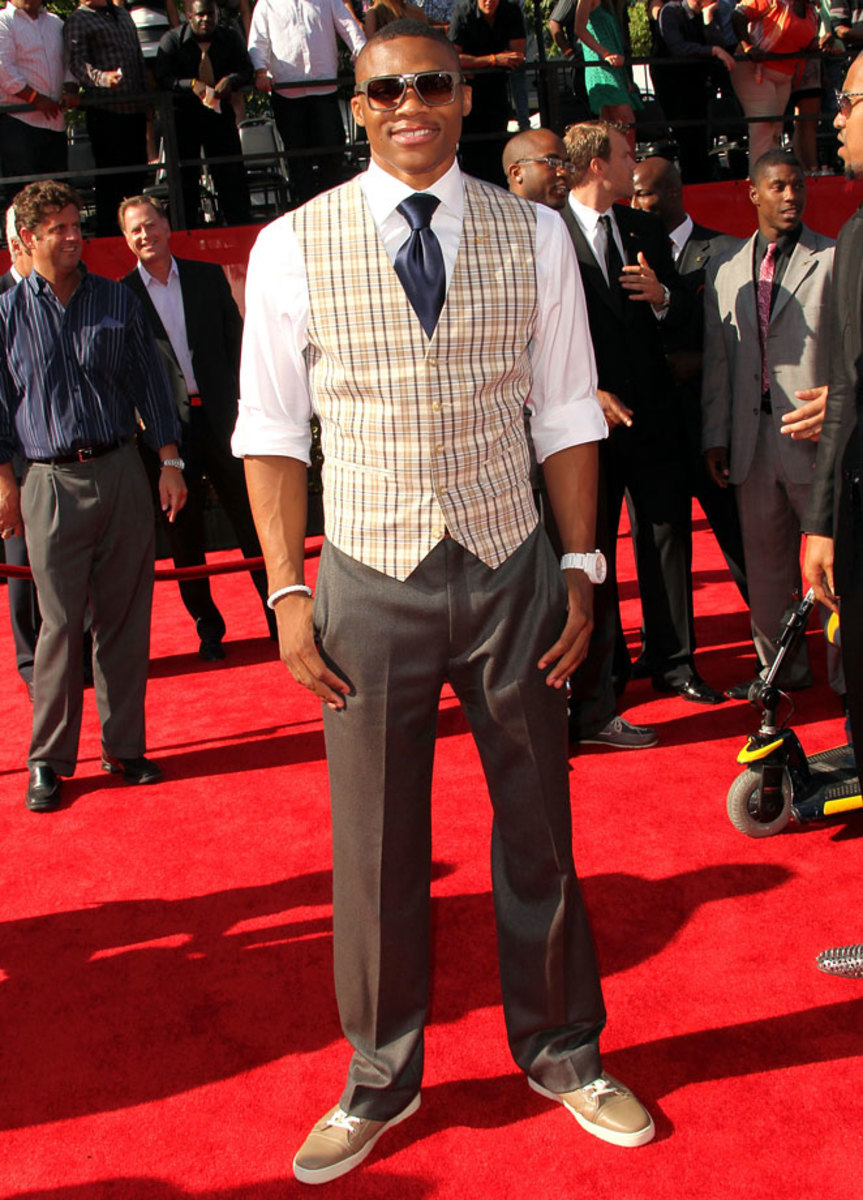
There are ways, too, that OKC’s defense can cramp San Antonio’s offense without leaving itself too vulnerable. One of the best-kept secrets in the NBA is that the Spurs are no longer all that proficient in range shooting; this is an interior team fueled by Leonard’s interior creation, Aldridge’s post-ups, and sharp passing to keep ahead of the defense. Most San Antonio lineups feature just two consistent long-range shooters in a league that generally demands three or more. If the Thunder can find ways to honor those few shooters (Leonard, Ginobili, Mills, and sometimes Green) while playing the under on the Spurs’ other cuts and screens, they’ll reinforce the connective points of their defense. The best way to manage San Antonio’s scoring is to force decent shooters into looks from the perimeter and weather the results without panicking.
Green will be crucial to that running subplot. San Antonio’s best long-range shooter (in theory) made just 33.2% of his threes in the regular season and just 26.7% (24-of-90) through March and April. Shots fell for Green in the first round against the Grizzlies, but a cold spell at the wrong time could put San Antonio’s offense in a bind. This team has quality one-on-one scorers but non quite on the level of a Durant or Westbrook. Either Leonard or Aldridge would see their lives as shot creators made significantly more difficult if San Antonio’s floor spacing were to be compromised.
In an inversion of that dynamic, Serge Ibaka—who has long distressed the Spurs with his shot-blocking and perimeter shooting—is coming off of a scorching first-round performance in which he made 25 of his 39 field goals (64.1%) and eight of his 13 three-pointers (61.5%). An alltime great defense like San Antonio’s will cut those percentages down, though Oklahoma City’s hopes for controlling the series hinge on Ibaka playing well. The matchup tends to tilt in the Thunder’s favor when Ibaka is healthy, active, and hitting shots. If all three hold, Ibaka’s play could buy his team a trip to the Western Conference finals.
It’s important to remember, too, that even Leonard’s exceptional defense cannot fully quash Durant’s contributions as a scorer and rebounder. We’ve seen Durant produce with reasonable efficiency in this matchup before; while every shot and move will be made more difficult by Leonard’s presence, Durant can do his part in a winning cause by averaging around 22 points on 45% shooting from the field. It’s important that he take shots because so many members of the Thunder rotation shouldn’t. It’s vital that he’s on the floor to occupy Leonard so that other elements of the offense can function as needed. Durant is playing some feisty basketball at the moment and will take a matchup against an upstart small forward as a challenge. I, for one, wouldn’t want to be the opponent in his way.
The X–Factor
Enes Kanter, Thunder. Kanter posted some big double doubles against San Antonio this season but—in truly a shocking development—Oklahoma City tended to give up points whenever he was on the floor. A demanding, high-stakes series like this one will help to frame Kanter’s value moving forward. What do his gaudy stats and clear limitations mean within the context of a team with little margin for error? And, to add another X-factor layer: What happens to the dynamics of this series if Billy Donovan (whether for injury or strategy reasons) limits Kanter’s minutes and pushes the Thunder to go smaller?
The Pick
Spurs in 6. Oklahoma City has just a few too many potential weaknesses in its rotation to hold up against the scrutiny of an alltime great defense and the relentlessness of San Antonio’s execution.
